commercial hvac melbourne
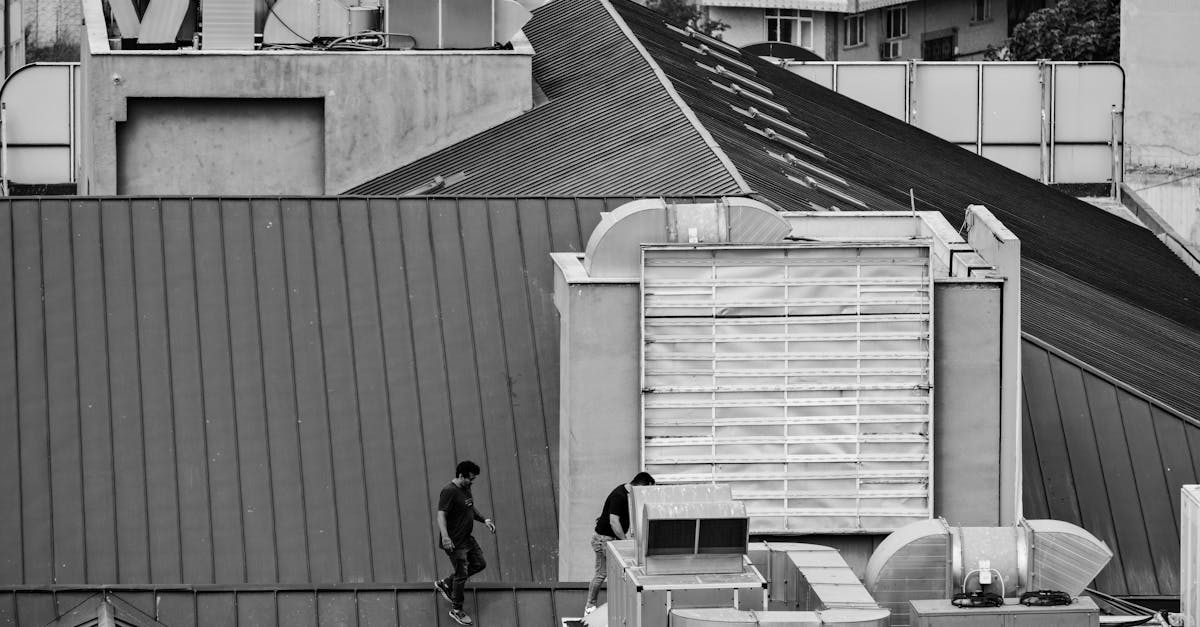
Utilising Virtual Reality for HVAC System Design and Training
The integration of virtual reality with existing HVAC software presents significant opportunities for enhancing design processes. By incorporating VR technology, designers can create immersive 3D models of HVAC systems that offer a more intuitive int...
Read more →
Innovations in Zoning Systems for Enhanced Comfort
Buildings increasingly incorporate energy management systems that optimise heating, ventilation, and air conditioning (HVAC) by utilising zoning strategies. These systems rely on advanced algorithms to analyse real-time data, enabling them to adjust ...
Read more →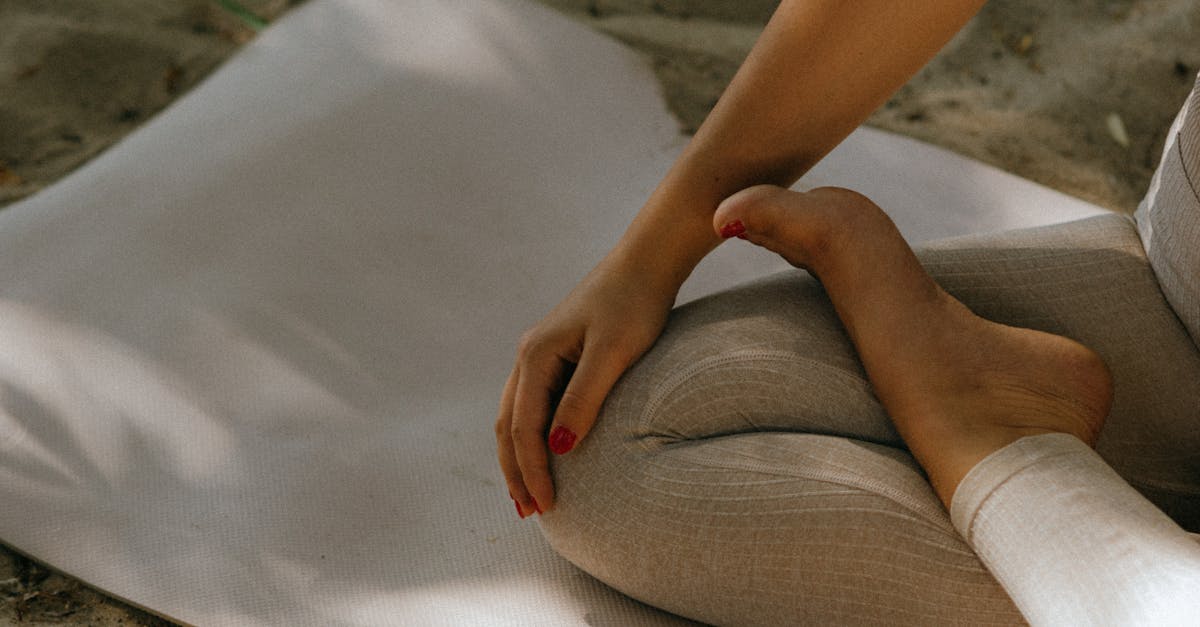
Evaluating the Benefits of Advanced Filtration Technologies
Industries across various sectors increasingly rely on advanced filtration technologies to enhance their operational performance. Manufacturing, food and beverage, and pharmaceuticals are just a few examples where these systems are implemented. The a...
Read more →
The Future of HVAC: Embracing Machine Learning for Performance
Artificial Intelligence (AI) plays a significant role in improving indoor air quality by enabling systems to make intelligent decisions based on real-time data. Sensors assess levels of pollutants, humidity, and temperature, allowing HVAC systems to ...
Read more →
Integration of Renewable Energy Sources in HVAC Systems
The integration of renewable energy sources into HVAC systems faces several significant obstacles. One of the primary hurdles is the existing infrastructure, which was primarily designed for conventional energy sources. Retrofitting or replacing thes...
Read more →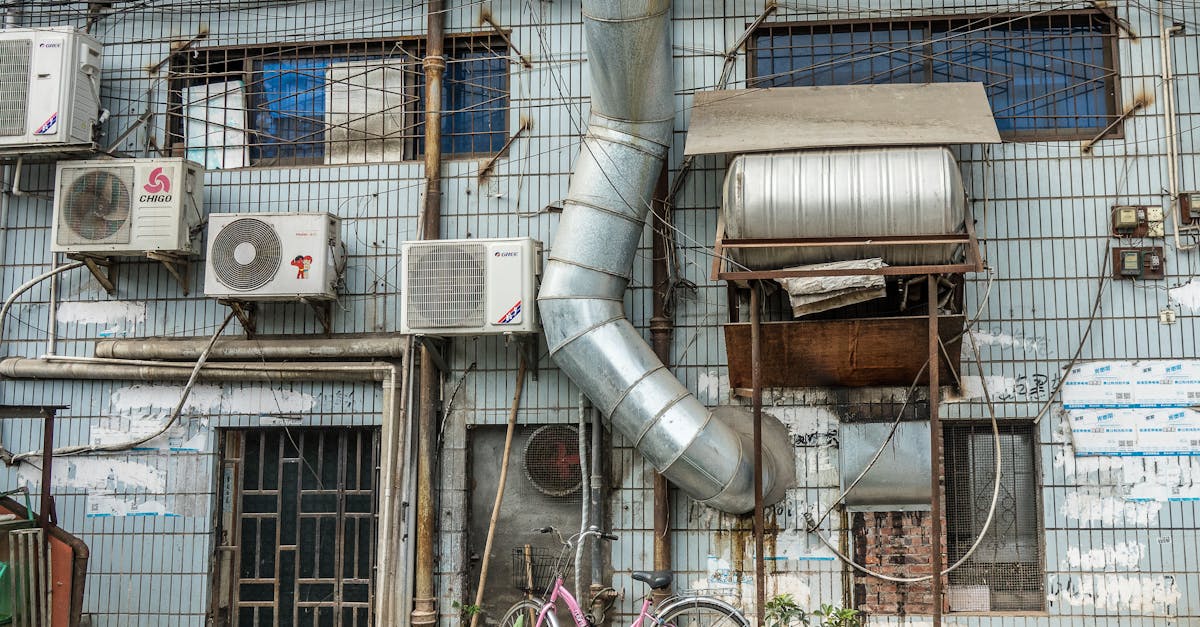
Emerging Trends in Sustainable HVAC Technologies
Recent advancements in technology have transformed climate control into a more responsive system. Smart sensors and IoT devices enable HVAC systems to monitor real-time conditions within a building. They can adjust temperatures and air quality based ...
Read more →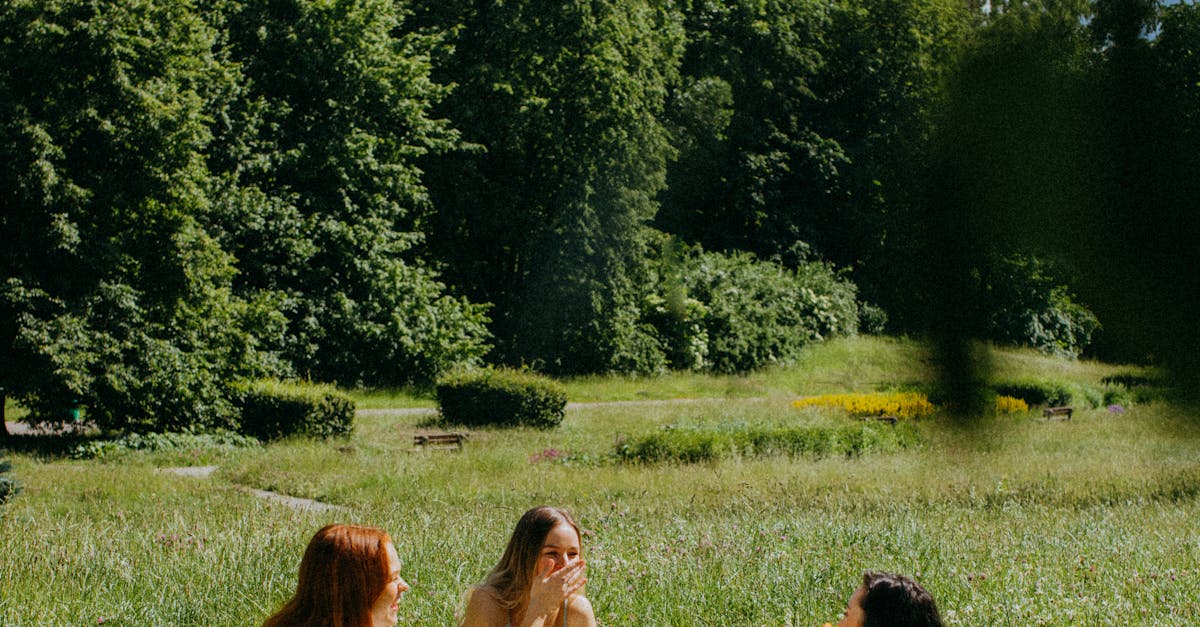
How Variable Refrigerant Flow Systems are Changing the Game
When planning the installation of Variable Refrigerant Flow (VRF) systems, several critical considerations come into play. The layout of the building significantly impacts the system's efficiency and effectiveness. It is essential to assess the avail...
Read more →
The Impact of AI on Energy Management in HVAC Systems
The integration of AI in HVAC systems provides significant cost savings for businesses through enhanced efficiency and streamlined operations. AI algorithms optimise energy consumption by automatically adjusting heating, ventilation, and air conditio...
Read more →
Advancements in IoT for Commercial HVAC Applications
The introduction of remote access capabilities in HVAC systems significantly enhances management efficiency. Operators can monitor and adjust settings from virtually anywhere, reducing response times during equipment failures. This flexibility allows...
Read more →
Tips for Involving Staff in the HVAC Selection Process
Understanding the preferences of staff can play a crucial role in selecting the right HVAC system. Employees are often most familiar with their work environment and its specific temperature needs. Conducting discussions or meetings can help gather th...
Read more →
The Role of Smart Technology in Modern Commercial HVAC Systems
Remote monitoring capabilities significantly enhance the efficiency of modern HVAC systems. Facility managers can oversee performance metrics in real-time, allowing for timely adjustments and quick identification of potential issues. This capability ...
Read more →
Evaluating Different Brands of HVAC Systems in Australia
Known for its innovative technology, Brand C offers a variety of HVAC systems tailored to meet diverse needs. Their units feature high energy efficiency ratings, which can lead to cost savings on energy bills. Many models incorporate smart technology...
Read more →
The Impact of Local Climate on HVAC System Choices
Climate variations throughout the year significantly influence the heating and cooling demands of buildings. For instance, warmer months necessitate increased reliance on air conditioning systems, while cooler months call for effective heating soluti...
Read more →
Comparing Ducted and Ductless Systems for Commercial Use
Ducted systems offer a comprehensive approach to heating and cooling large spaces, making them a popular choice for commercial environments. These systems utilise a network of ducts to distribute conditioned air evenly throughout the building. When d...
Read more →
Budgeting for Your Commercial HVAC Installation Costs
When planning for a commercial HVAC installation, it is important to consider expenses that extend beyond the immediate costs of purchasing and installing the system. These additional costs can include ductwork modifications, specialised electrical w...
Read more →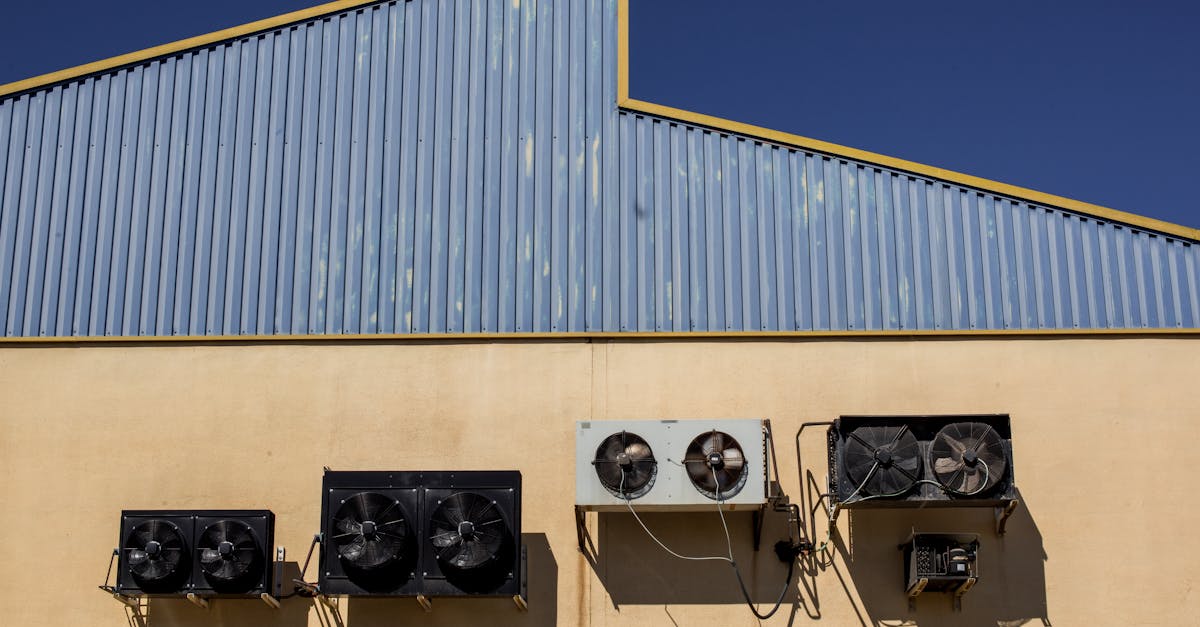
Understanding System Capacity for Optimal Performance
Effective system capacity optimization begins with a thorough assessment of current usage patterns. Gathering data on peak performance times and understanding user behaviour can highlight bottlenecks. This information allows organisations to identify...
Read more →
Energy Ratings and Their Importance in System Selection
Energy ratings serve as a critical tool in the assessment of building performance, influencing design choices and construction materials. These ratings provide measurable parameters that reflect a building's energy efficiency, shaping everything from...
Read more →
The Role of Building Size in Selecting HVAC Systems
Understanding the unique demands of varied spaces is essential when it comes to selecting an HVAC system. Different environments, such as residential homes or expansive commercial complexes, have distinct heating and cooling needs. In smaller residen...
Read more →
How to Assess the Cooling and Heating Needs of Your Business
Understanding the unique requirements of your business is crucial when determining heating and cooling needs. Factors such as the type of products you store, equipment in use, and the number of employees present play significant roles in establishing...
Read more →
Factors to Consider When Choosing a Commercial HVAC System in Melbourne
Melbourne experiences a diverse climate, with unpredictable weather patterns that can vary significantly from day to day. Summers can bring intense heat, while winters often see cold temperatures accompanied by rain. Businesses must carefully assess ...
Read more →
Strategies for Overcoming Electrical Component Failures in HVAC
A well-structured response plan is essential for mitigating the impacts of electrical component failures in HVAC systems. This plan should outline clear procedures that technicians and management can follow to identify the issue swiftly and implement...
Read more →
Managing and Eliminating Indoor Air Quality Issues in HVAC
A proactive approach to HVAC maintenance minimises the risk of indoor air quality issues. Regular checks ensure that equipment runs efficiently, reducing the likelihood of dust, allergens, and contaminants circulating indoors. Schedule routine inspec...
Read more →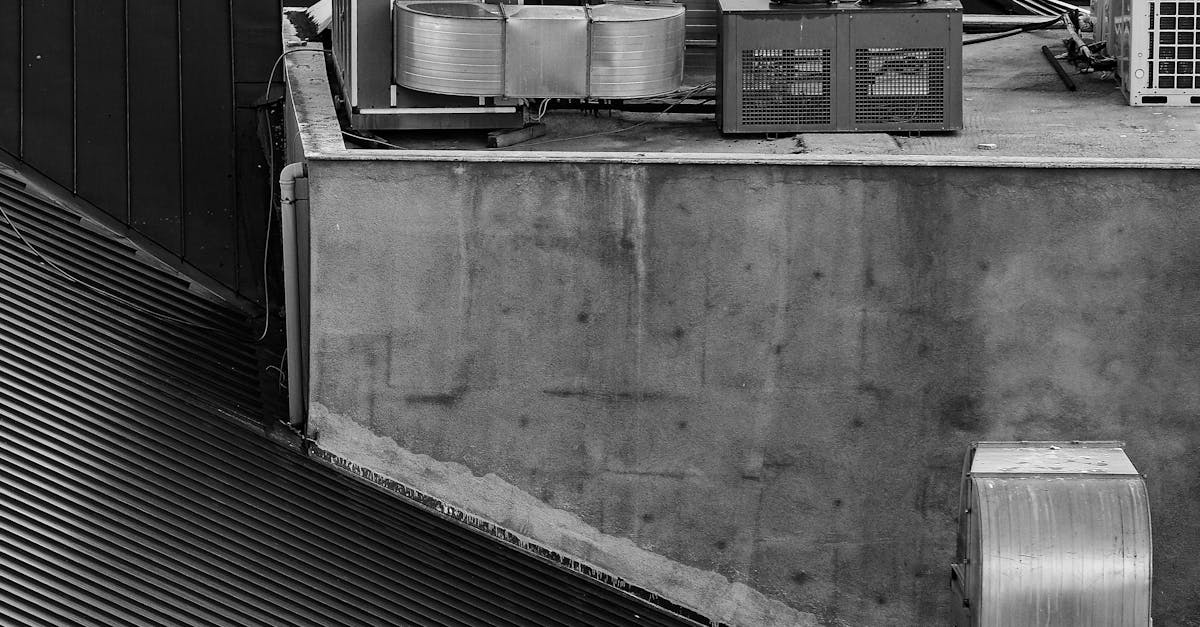
Effective Methods for Preventing Condensate Drain Blockages
Upgrading drainage systems can significantly enhance their efficiency and reduce the risk of blockages. Older systems may not cope well with the increased demands of modern appliances and technology. By investing in high-quality components and more e...
Read more →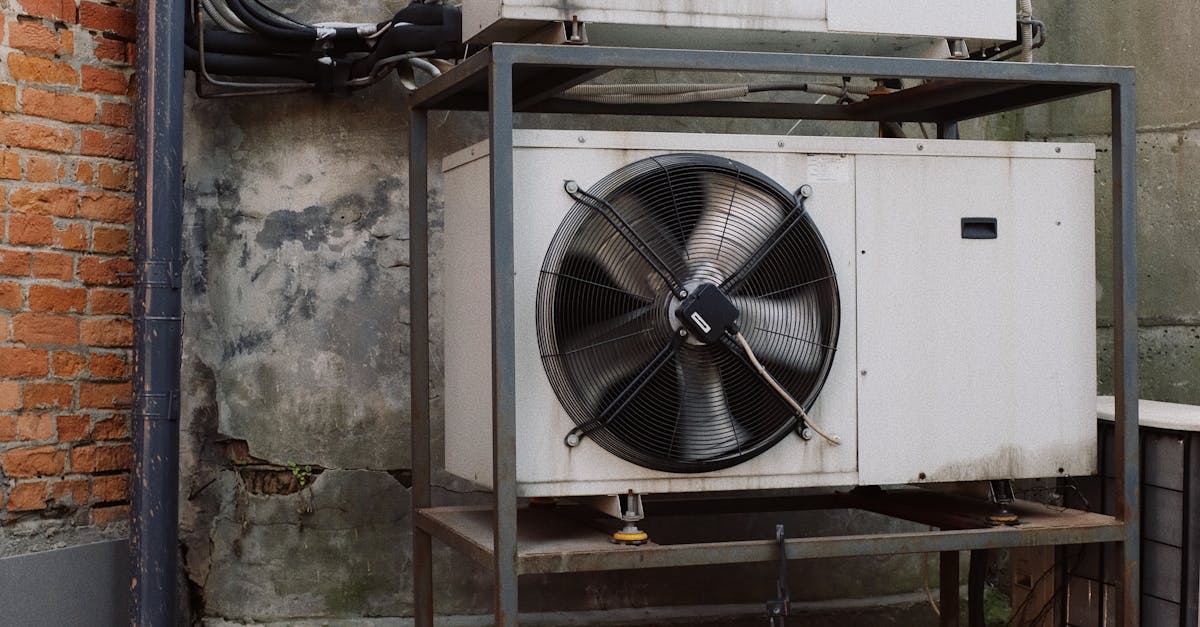
Solutions for Uneven Temperature Distribution in Large Spaces
Portable heating and cooling units offer a flexible solution for addressing temperature imbalances in large spaces. These devices can be strategically placed in areas that experience extreme temperatures, providing an immediate and tailored response ...
Read more →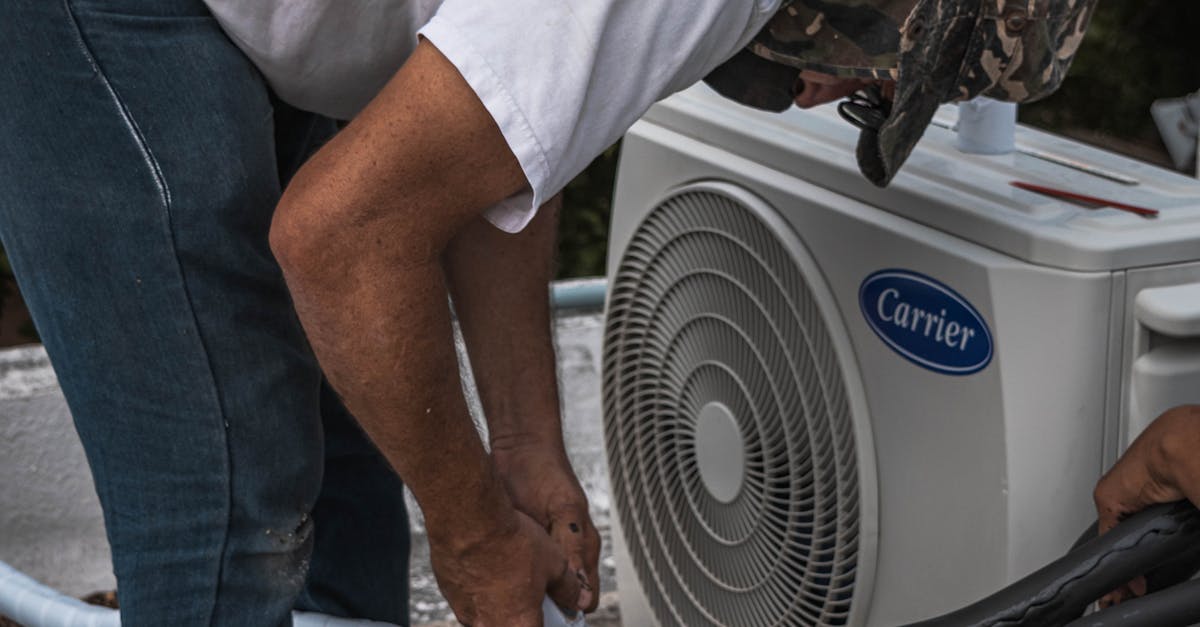
Troubleshooting Inefficient Cooling Performance in HVAC Systems
Maintaining the correct refrigerant levels is crucial for optimal HVAC system performance. Low refrigerant levels often lead to inadequate cooling, resulting in higher energy bills and increased wear on the system. Undercharging limits the system’s...
Read more →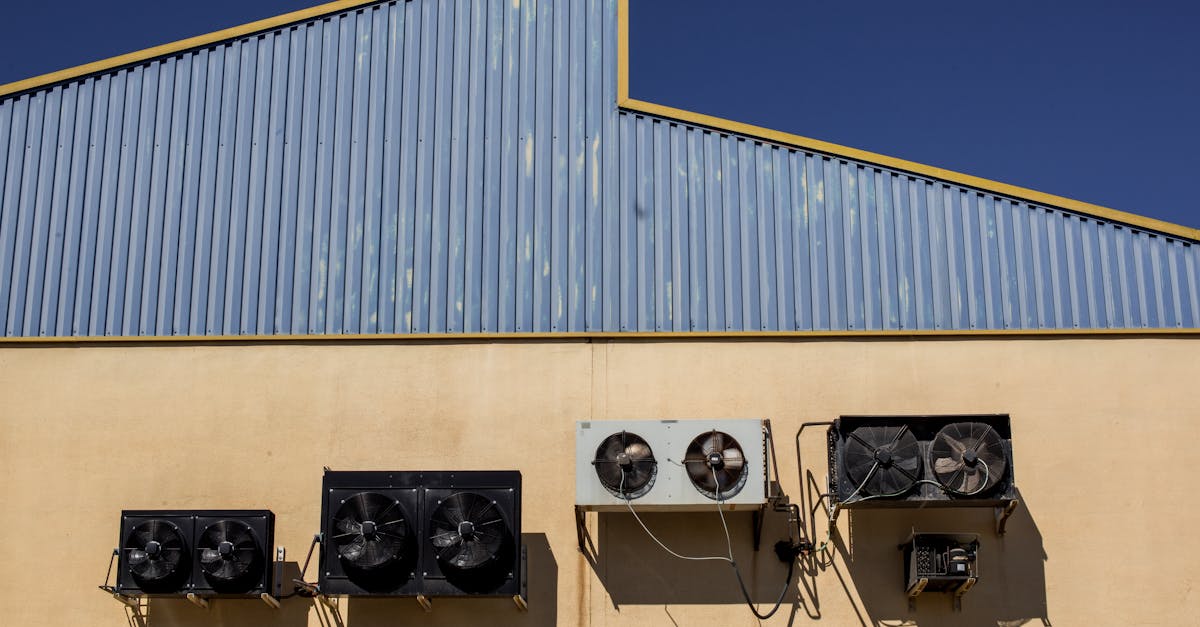
Addressing Short Cycling Problems in Commercial HVAC Solutions
Regularly monitoring system settings can significantly reduce the likelihood of short cycling in HVAC systems. Ensure that the thermostat is set to an appropriate temperature range. An overly ambitious temperature setting can cause the system to turn...
Read more →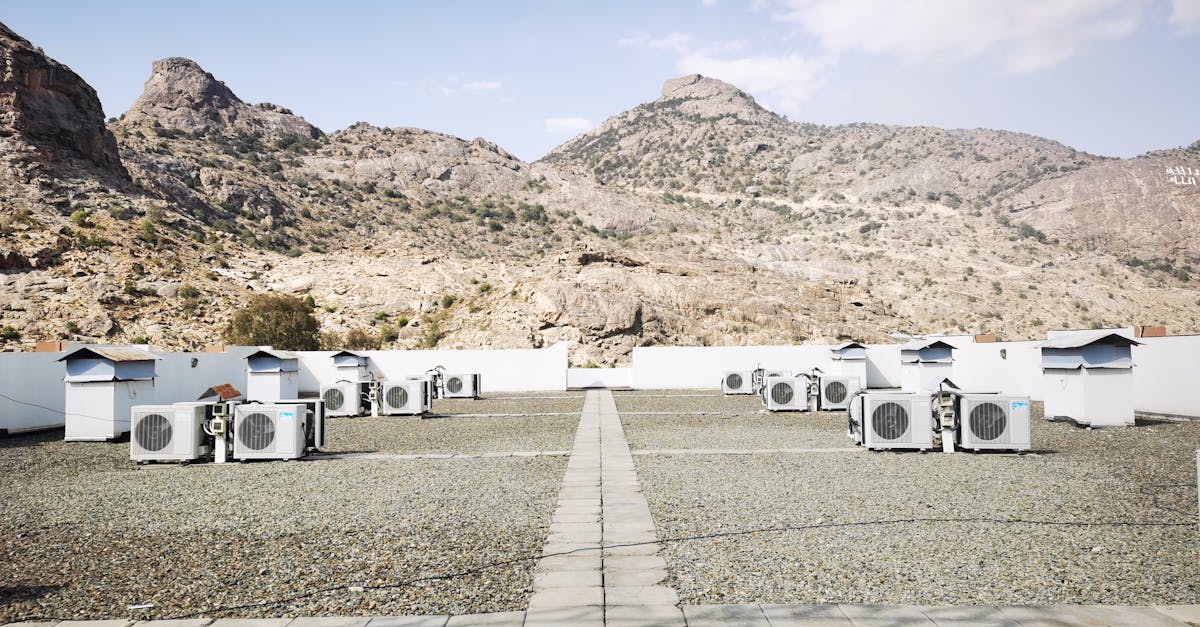
Identifying and Rectifying Excessive Noise in HVAC Units
Regular maintenance is essential for ensuring HVAC units operate smoothly and quietly. This includes tasks such as cleaning or replacing air filters, tightening electrical connections, and inspecting belts and fans for wear and tear. These routine ch...
Read more →
Diagnosing Thermostat Malfunctions in Commercial Environments
Regular maintenance of thermostats plays a crucial role in ensuring optimal performance and efficiency within commercial environments. Dust, debris, and other contaminants can accumulate over time, leading to inaccurate temperature readings or malfun...
Read more →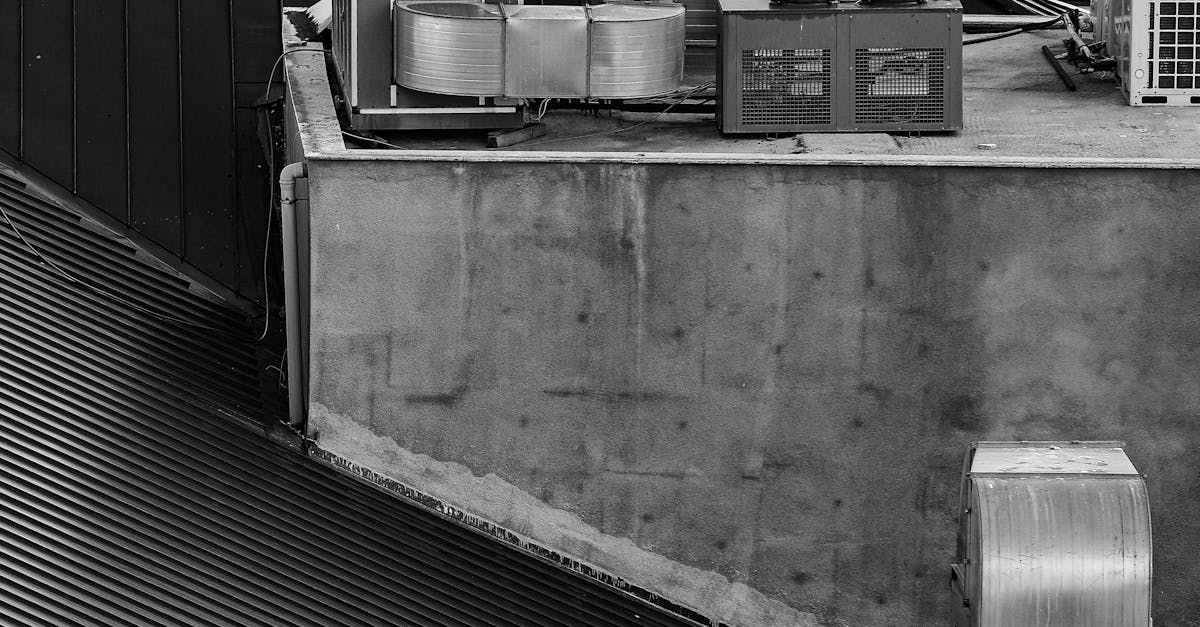
Understanding Refrigerant Leaks in Commercial HVAC Systems
When a refrigerant leak is detected in a commercial HVAC system, prompt action is necessary to minimise both environmental impact and operational downtime. The first step involves identifying the leak's location, which may be facilitated by using ele...
Read more →
Resolving Air Flow Issues in Large Scale HVAC Installations
Regular maintenance is essential for ensuring the efficient operation of HVAC systems in large-scale installations. Scheduling routine inspections can help identify potential issues before they escalate into significant problems. Technicians should c...
Read more →
Why Smart HVAC Upgrades are Essential for Competitive Commercial Spaces
Integrating smart HVAC systems into commercial spaces forms a crucial aspect of sustainable business practices. These systems are designed to optimise energy use, resulting in reduced consumption and lower operational costs. With an increasing emphas...
Read more →
Extending Equipment Lifespan: The Impact of Upgrading HVAC Systems
Consistent upkeep of HVAC systems significantly contributes to their longevity. Regular maintenance involves inspections, cleaning, and necessary repairs, which prevent minor issues from escalating into major problems. This proactive approach enhance...
Read more →
Navigating the HVAC Upgrade Process: Key Benefits for Melbourne Businesses
Opting for professional installation of HVAC systems ensures a higher level of expertise and reliability. Qualified technicians possess the necessary training and experience to navigate complex installations. They also have access to specialized tool...
Read more →
Optimising Energy Use: The Payoff of Upgrading Your HVAC System
Upgrading an HVAC system can significantly reduce energy consumption and minimise greenhouse gas emissions. Modern systems are designed with advanced technology that optimises cooling and heating efficiency. By utilising energy-efficient models, hous...
Read more →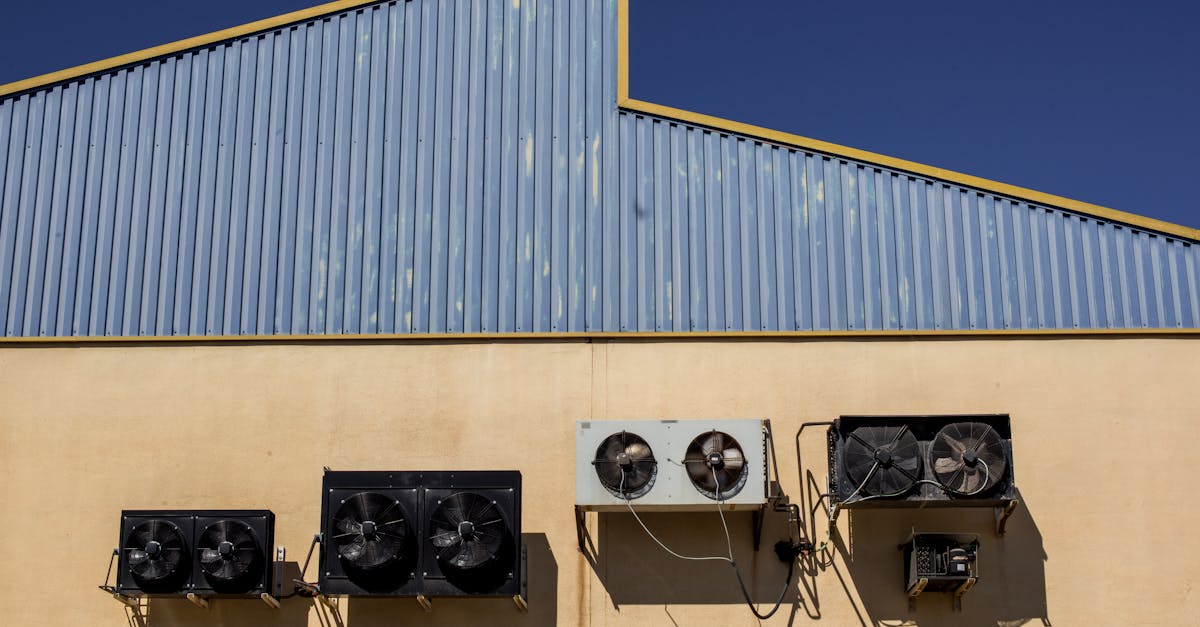
Understanding the Long-Term Benefits of Investing in New HVAC Technology
Investing in new HVAC technology often leads to significant long-term financial savings. Enhanced energy efficiency can drastically reduce utility bills, resulting in lower operational costs for both residential and commercial properties. Over time, ...
Read more →
Improved Indoor Air Quality: Benefits of Upgrading Commercial HVAC Systems
Quality indoor air can significantly influence an employee's ability to perform effectively. Contaminants such as dust, mould, and volatile organic compounds can lead to discomfort and health issues, ultimately impacting focus and efficiency. Enhanci...
Read more →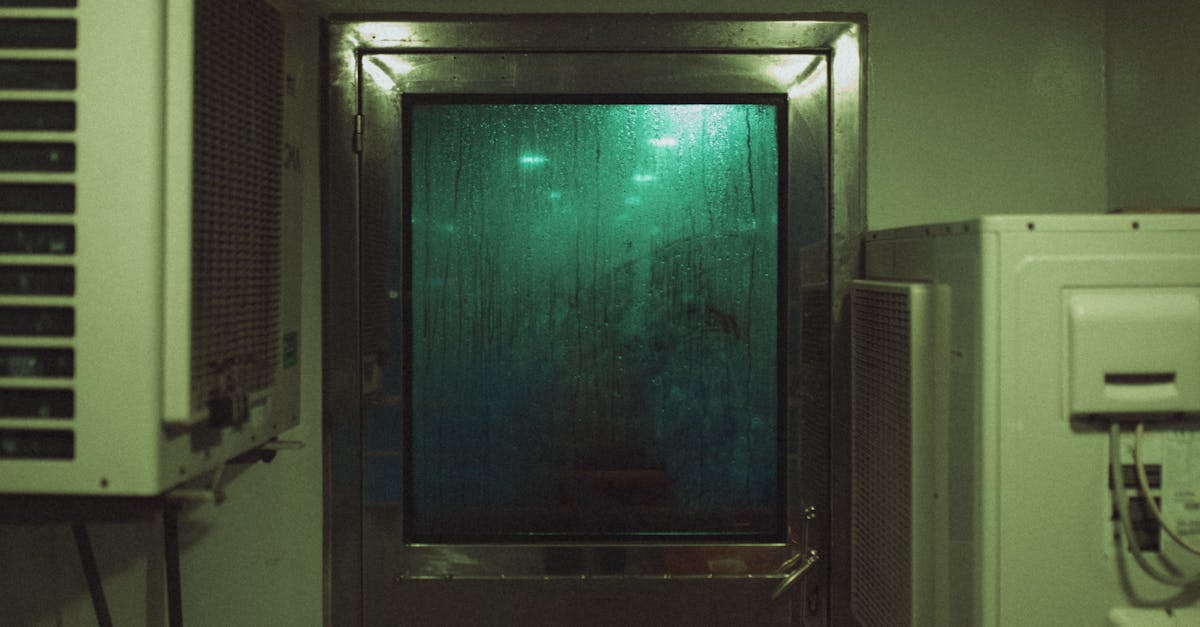
The Role of Modern HVAC Systems in Achieving Sustainability Goals
Modern HVAC systems play a crucial role in minimising energy consumption, which is a significant contributor to carbon emissions. High-efficiency units and smart thermostats enable better control over energy use. Implementing zoning systems allows fo...
Read more →
Increasing Property Value Through HVAC Upgrades in Commercial Spaces
Regular maintenance is crucial for ensuring that HVAC systems operate efficiently and effectively over time. A well-maintained system not only functions better but also contributes to a comfortable and productive environment in commercial spaces. Rou...
Read more →
The Advantages of Using Heat Pumps in Melbourne's Commercial Sector
Utilising heat pumps significantly contributes to better indoor air quality in commercial spaces. These systems are designed to filter and dehumidify the air, removing contaminants and allergens that can accumulate over time. As a result, employees a...
Read more →
Cost Savings: How New HVAC Systems Lower Your Utility Bills
Selecting the ideal HVAC system can significantly impact both comfort and energy efficiency in your home. It's essential to assess the size of your space, ensuring that the chosen unit can adequately heat or cool the area without overworking. Energy ...
Read more →
Enhancing Comfort: The Advantages of Upgrading Your HVAC System in Melbourne
Modern HVAC systems are designed with advanced technology that sharply reduces noise levels. This feature not only enhances the comfort of your living space, but also allows you to maintain a peaceful home environment. Unlike older models, which ofte...
Read more →
How to Choose Chilled Beam Systems for Efficient Climate Control
When planning the installation of chilled beam systems, it is essential to evaluate the existing infrastructure. Adequate ceiling height and structural integrity are critical factors that impact the effectiveness of the beams. These systems are typic...
Read more →
Key Features of Modular HVAC Systems for Flexible Workspaces
Modern HVAC systems are increasingly equipped with advanced control technologies that enhance efficiency and adaptability. These systems utilise sophisticated sensors and algorithms to monitor environmental conditions in real-time. Adjustments to tem...
Read more →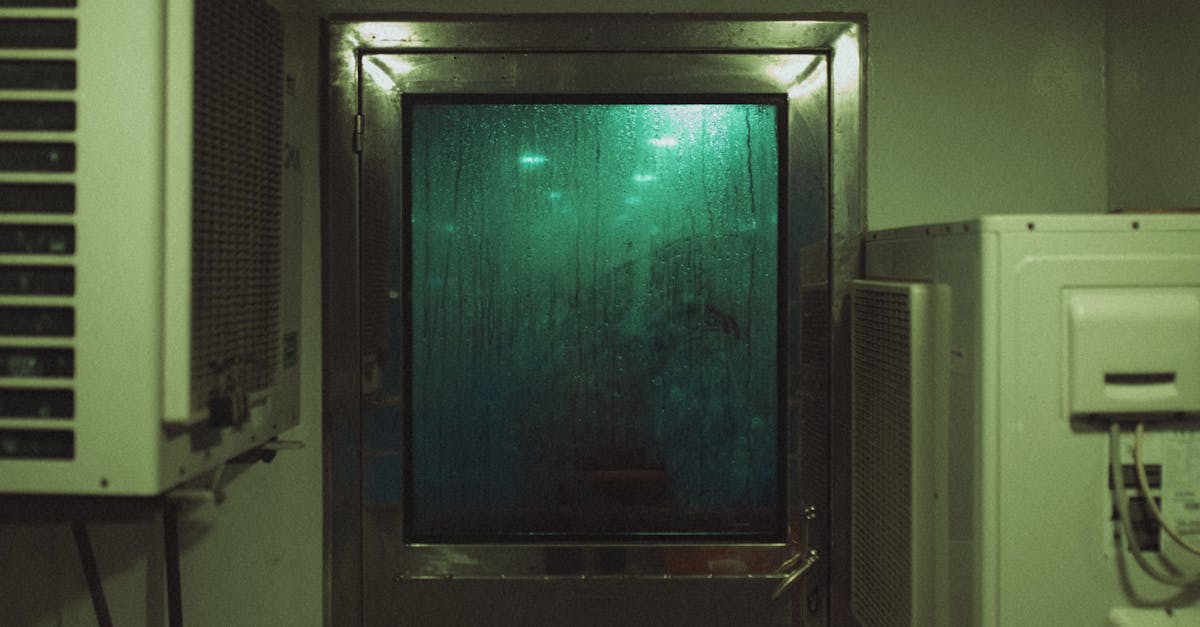
Understanding the Application of Fans and Blowers in HVAC Systems
Routine maintenance is essential to ensure the efficient operation of HVAC fans and blowers. Regular inspections can identify potential issues before they escalate into significant problems. Checking for debris buildup, verifying the integrity of mou...
Read more →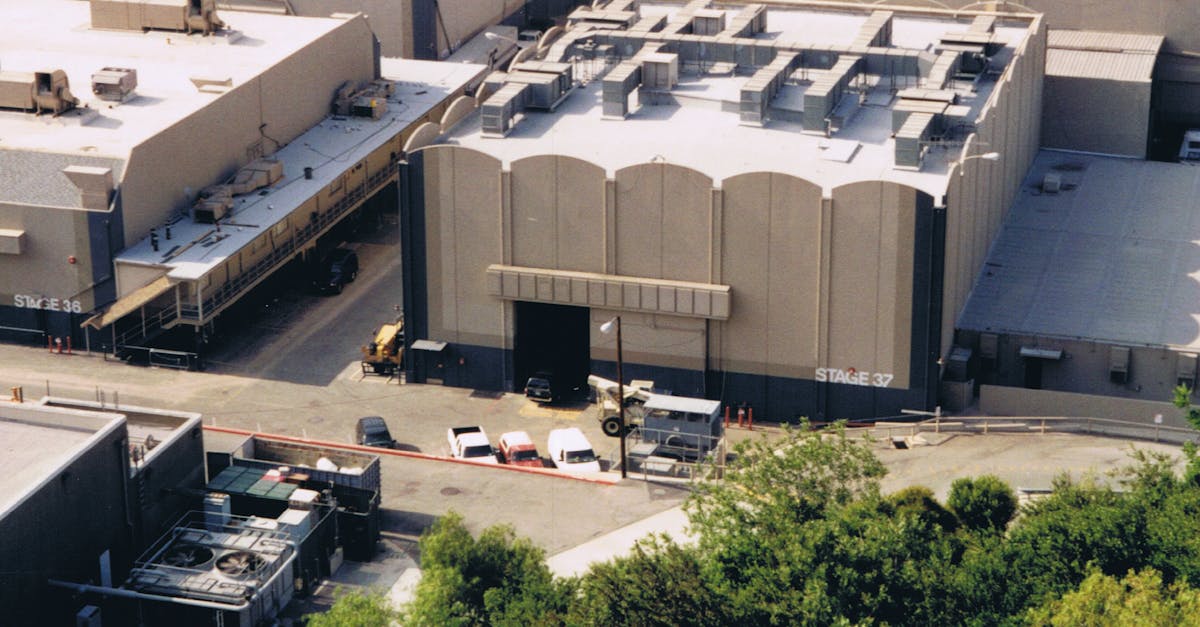
Overview of Evaporative Coolers for Commercial Buildings in Hot Climates
Routine maintenance is essential to ensure optimal performance and longevity of evaporative coolers. Regular cleaning of the water reservoir and filtration systems is necessary to prevent blockages and maintain air quality. Inspecting and tightening ...
Read more →
An Insight into Radiant Heating Systems for Melbourne Offices
Regular upkeep of radiant heating systems is essential to ensure optimal performance and efficiency. Owners should conduct periodic inspections to check for any leaks or blockages in the system. Flushing the pipes or conduits at least once a year can...
Read more →
Differences Between Packaged Units and Split Systems for Commercial Use
The installation process for commercial split systems involves several key steps that require careful planning and execution. Initially, a site assessment is conducted to determine the optimal location for both indoor and outdoor units. This ensures ...
Read more →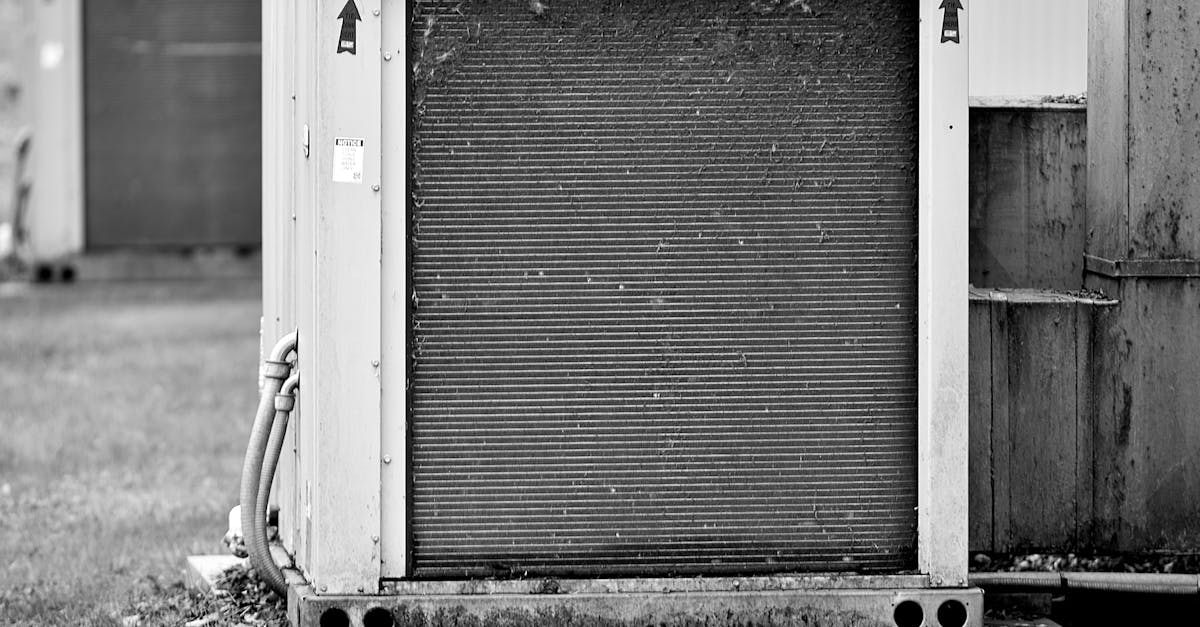
Exploring the Benefits of VRF Systems for Melbourne Commercial Properties
In recent years, the demand for environmentally responsible technologies has surged, particularly in commercial properties. Variable Refrigerant Flow (VRF) systems align with this trend by providing efficient heating and cooling solutions that signif...
Read more →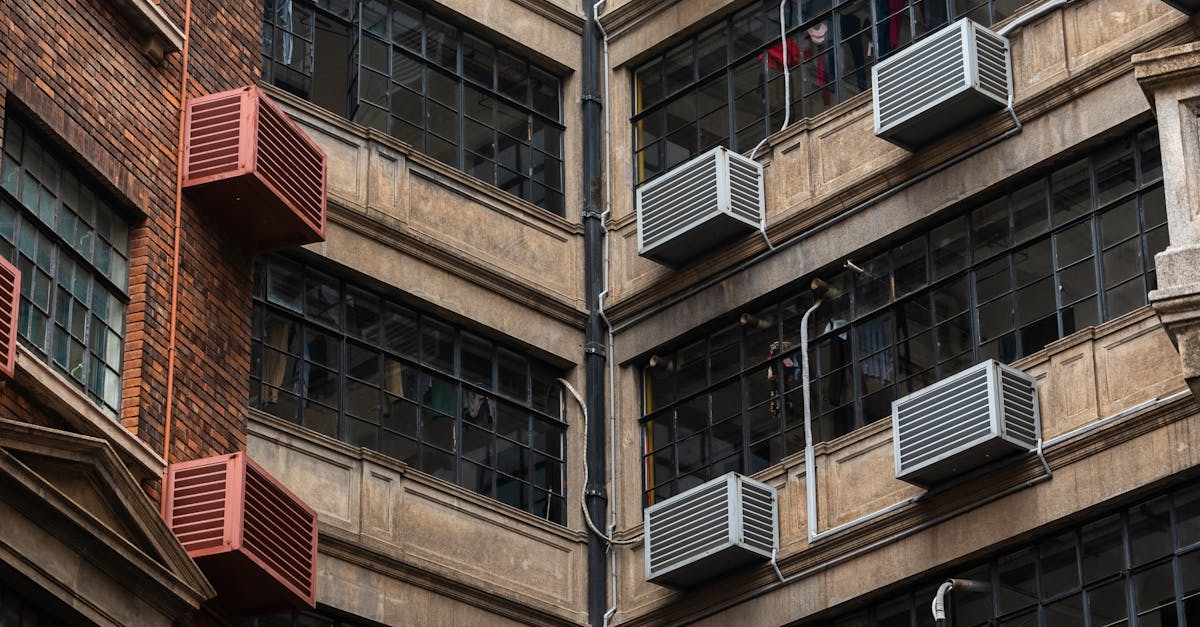
The Role of Ducted Refrigerated Air Conditioning in Business Environments
When evaluating different air conditioning systems, ducted refrigerated cooling and split systems present distinct features tailored to varying needs. Ducted systems provide a comprehensive, centralised cooling solution, delivering air through a netw...
Read more →
Understanding Split System HVAC Units for Commercial Spaces in Melbourne
Split system HVAC units offer distinct advantages when compared to traditional centralised air conditioning systems. Their design allows for targeted heating and cooling, meaning businesses can choose which areas of their premises to climate control....
Read more →
The Impact of Regular Maintenance on HVAC Energy Performance
Regular inspection of HVAC systems before the peak seasons can significantly enhance performance. For summer, check the refrigerant levels and ensure that the outdoor unit is free of debris. It is essential to clean the condenser coils, as dirt build...
Read more →
Energy Audit Methods for Assessing Commercial HVAC Efficiency
Monitoring-based commissioning (MBCx) offers a systematic approach to ensuring that HVAC systems operate at peak efficiency. By integrating real-time monitoring technologies, building operators can collect and analyse data regarding system performanc...
Read more →
Reducing Peak Energy Demand with Advanced HVAC Monitoring Techniques
Real-time monitoring of HVAC systems offers significant advantages for energy management. By continuously tracking performance metrics, facilities can promptly identify inefficiencies or malfunctions. This information empowers building operators to m...
Read more →
Understanding HVAC Energy Consumption Patterns for Better Efficiency
HVAC systems are typically utilised more during specific times of the day, especially in warmer months. Mornings and late afternoons often see increased demand due to fluctuating outdoor temperatures. During these peak hours, energy consumption rises...
Read more →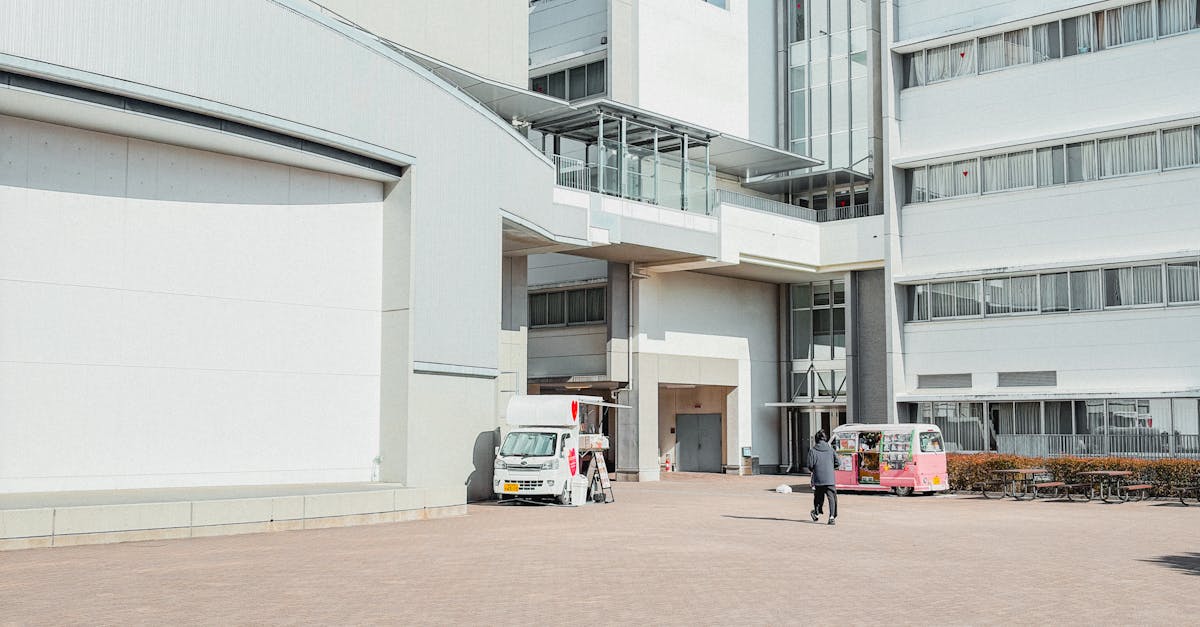
Integrating IoT Solutions for Real-Time HVAC Energy Monitoring
Incorporating real-time monitoring techniques in HVAC systems can lead to significant improvements in energy efficiency. Utilising IoT sensors helps capture real-time data on temperature, humidity, and air quality. This information is transmitted to ...
Read more →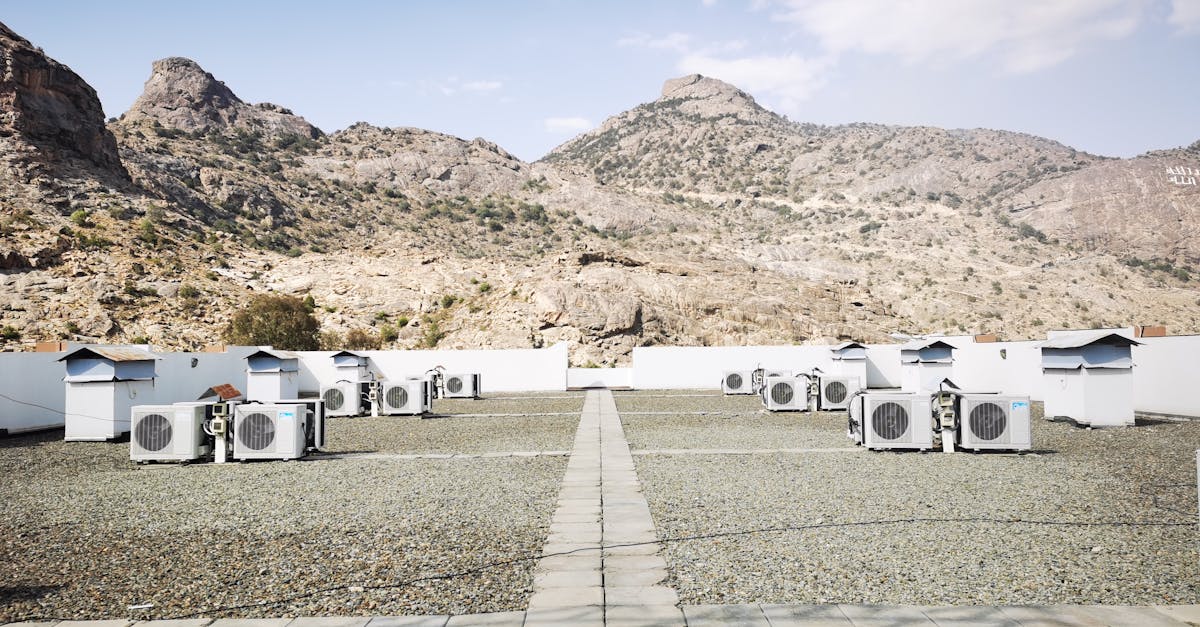
Case Studies on Successful HVAC Energy Optimisation
Effective HVAC energy optimisation begins with regular maintenance. Scheduled inspections can identify potential issues, ensuring systems operate efficiently. Cleaning or replacing filters on a routine basis plays a vital role in maintaining air qual...
Read more →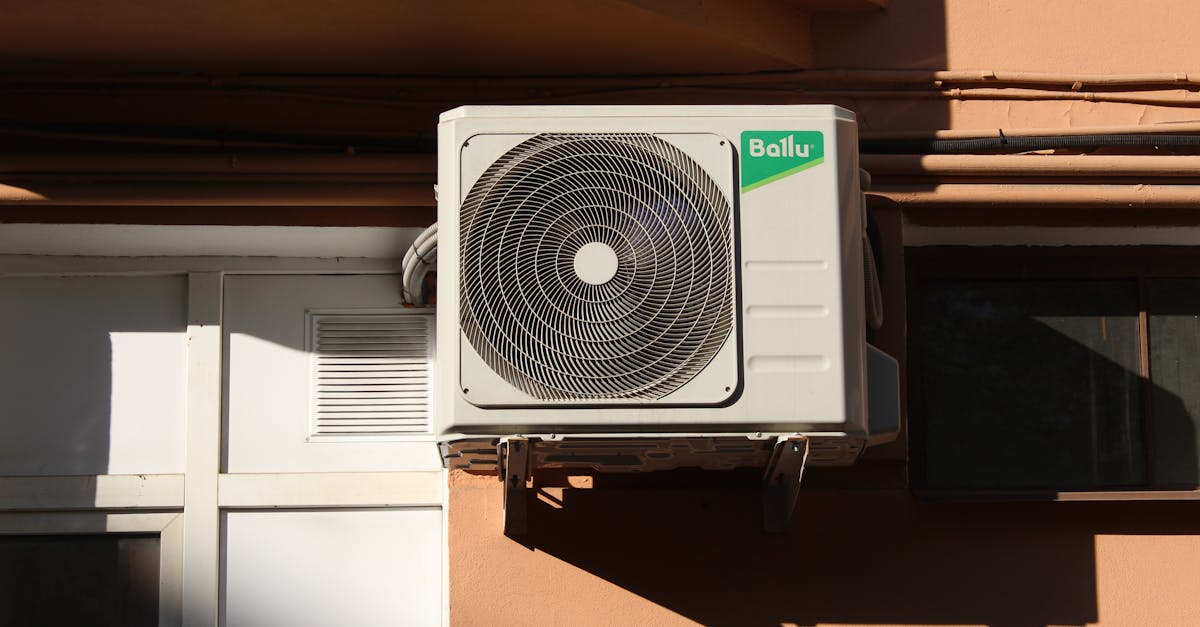
The Role of Data Analytics in HVAC Energy Management
The integration of Internet of Things (IoT) technology into HVAC systems facilitates real-time monitoring and control of heating, ventilation, and air conditioning processes. Smart sensors collect data on temperature, humidity, and energy usage, allo...
Read more →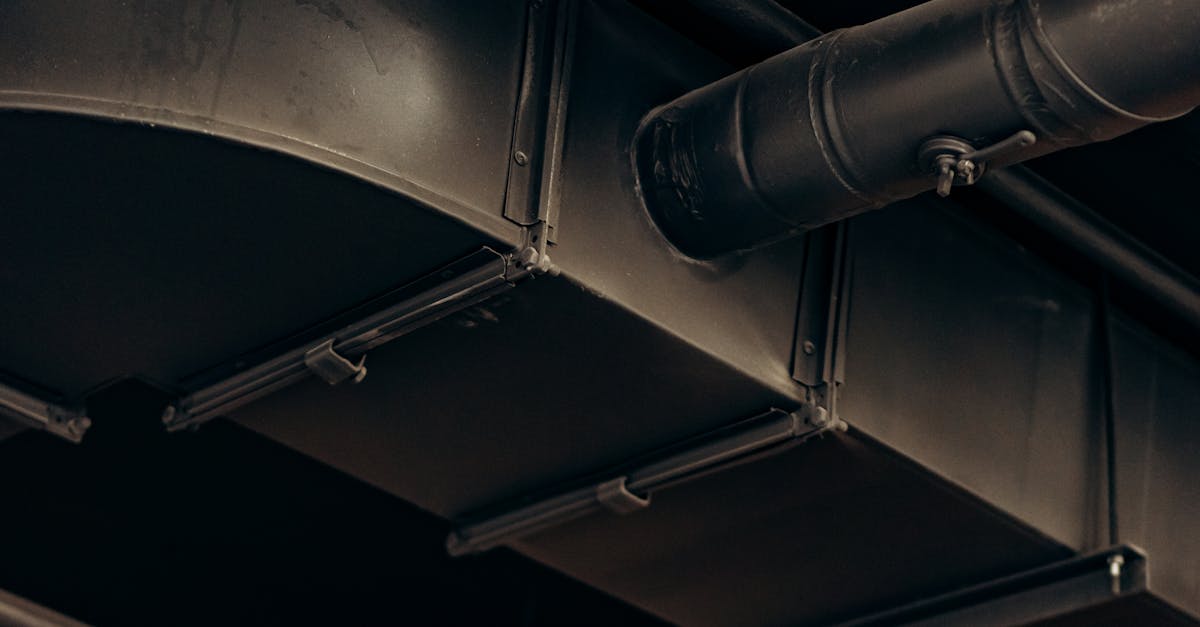
Implementing Smart Technology for Enhanced HVAC Energy Efficiency
The integration of smart HVAC systems with home automation technology offers significant benefits for energy management and comfort. By connecting heating and cooling systems to a home’s central control unit, users can manage their environment from...
Read more →
Best Practices for Optimising Energy Consumption in Commercial HVAC Systems
Energy recovery ventilation (ERV) systems play a crucial role in enhancing HVAC efficiency. These systems capture the energy from exhaust air and use it to precondition incoming fresh air. By transferring heat or coolness, depending on the season, th...
Read more →
Strategies for Improving HVAC Energy Monitoring in Commercial Spaces
Fostering a culture of energy efficiency within a commercial space starts with comprehensive training for staff members. Regular training sessions can equip employees with the knowledge and skills necessary to implement energy-saving practices in the...
Read more →
Steps for Conducting an HVAC Retrofit Assessment
Engaging with stakeholders is a critical initial step in any HVAC retrofit assessment. Understanding the perspectives and needs of various parties helps ensure that the project will meet the intended requirements. Building owners often seek cost-effe...
Read more →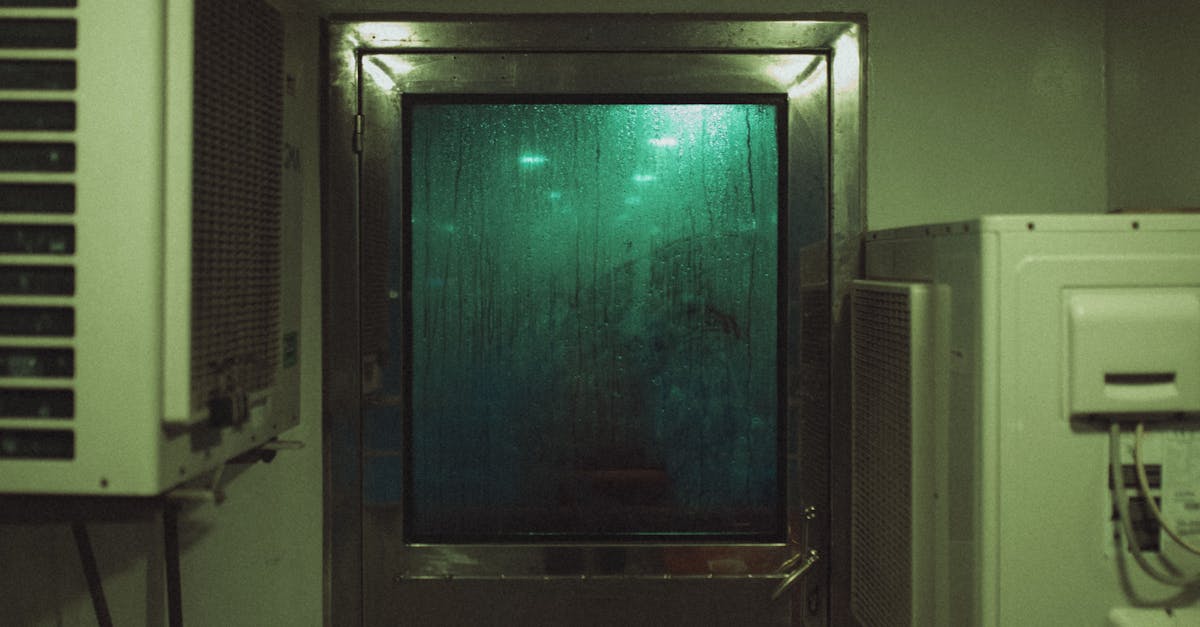
Enhancing Indoor Air Quality Through HVAC Retrofitting
Energy efficiency plays a crucial role in enhancing indoor air quality. Well-designed HVAC systems that optimise energy usage not only reduce environmental impact but also create healthier indoor environments. When systems operate efficiently, they r...
Read more →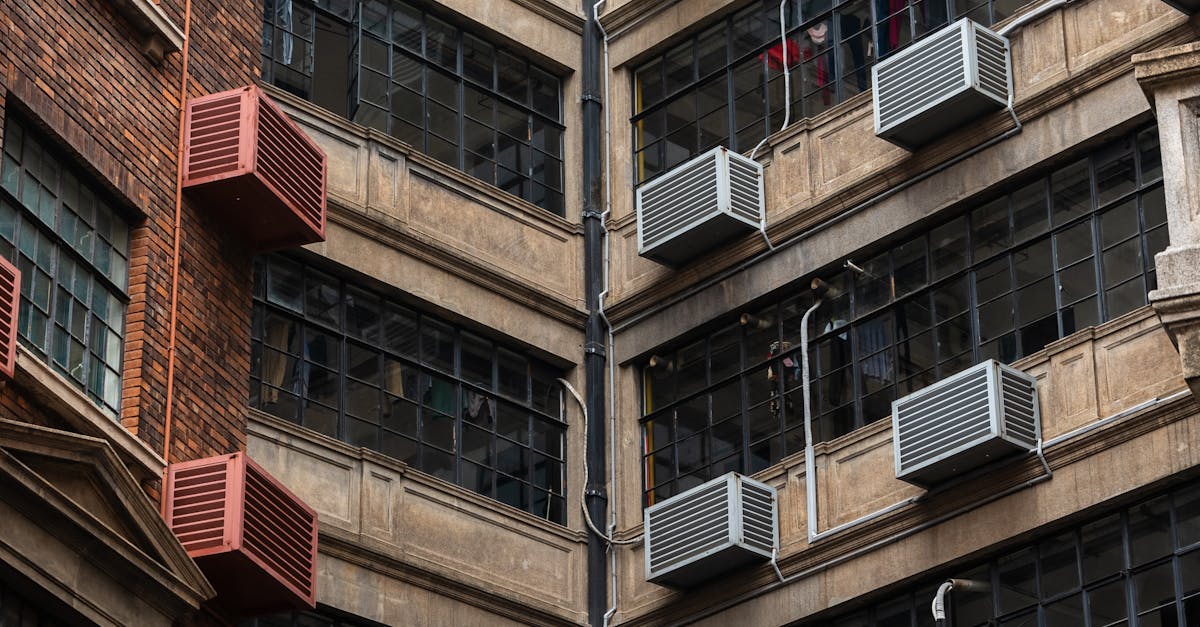
Sustainable Materials for Retrofitting Your Commercial HVAC
The choice of refrigerants significantly influences the environmental footprint of HVAC systems, particularly in commercial settings. Traditional refrigerants, such as hydrofluorocarbons (HFCs), have been widely used due to their efficiency but contr...
Read more →
Benefits of Integrating Smart Technology into Retrofitted Systems
The integration of smart technology into retrofitted systems significantly enhances sustainability by optimising energy consumption. Advanced sensors and smart meters provide real-time monitoring of energy use, allowing for adjustments that lead to d...
Read more →
Common Mistakes to Avoid When Retrofitting HVAC Systems
Ignoring zoning needs can lead to significant inefficiencies in HVAC performance. Buildings with varied layouts or different usage patterns often require targeted heating and cooling solutions. Without a zoning strategy, some areas may experience ove...
Read more →
How to Successfully Retrofit Your HVAC System in Melbourne
When planning a timeline for your HVAC retrofit, start by assessing the existing system. Understanding its age, efficiency, and specific issues will help you better identify necessary upgrades. Engaging a professional to conduct an energy audit can p...
Read more →
Overview of National and Local Programs for HVAC Efficiency
Several advanced technologies have emerged to enhance HVAC efficiency significantly. Variable refrigerant flow (VRF) systems, for instance, allow individual zone control, adapting energy usage based on real-time demands. Ductless mini-split systems f...
Read more →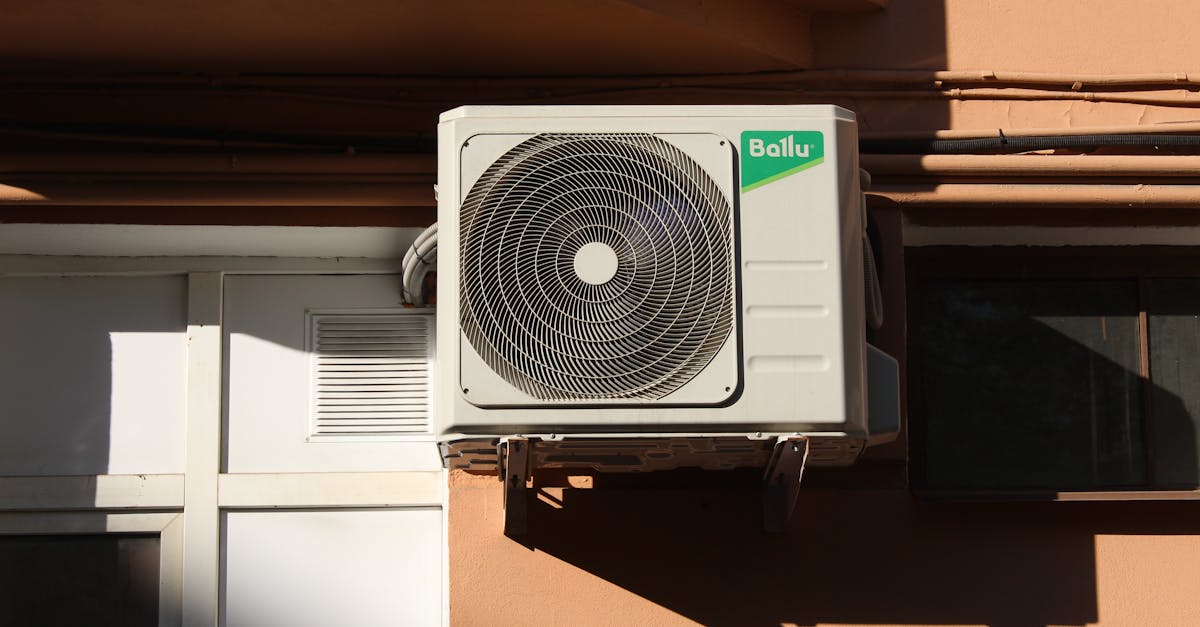
Retrofitting Strategies for Maximising Energy Efficiency
The transition to renewable energy sources is a significant step toward reducing reliance on fossil fuels. Solar panels are among the most popular options for residential installations. They harness sunlight and convert it into electricity, providing...
Read more →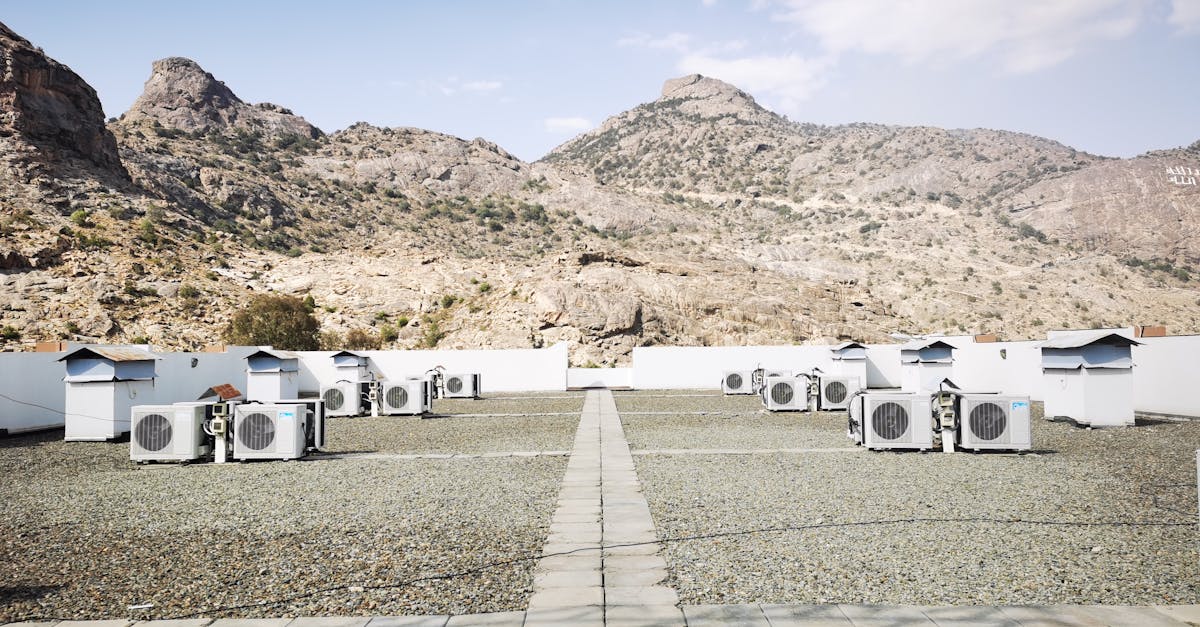
Upgrading Insulation: A Critical Step in HVAC Retrofitting
When upgrading insulation, it's essential to understand the R-value, which measures resistance to heat flow. Higher R-values indicate better insulation performance. The recommended insulation R-values can vary significantly across different regions o...
Read more →
Key Considerations for Retrofitting Commercial HVAC Systems
Understanding local regulations is a fundamental step in retrofitting HVAC systems in commercial spaces. Each jurisdiction may have its own requirements regarding energy efficiency, emissions standards, and safety practices. It is essential to consul...
Read more →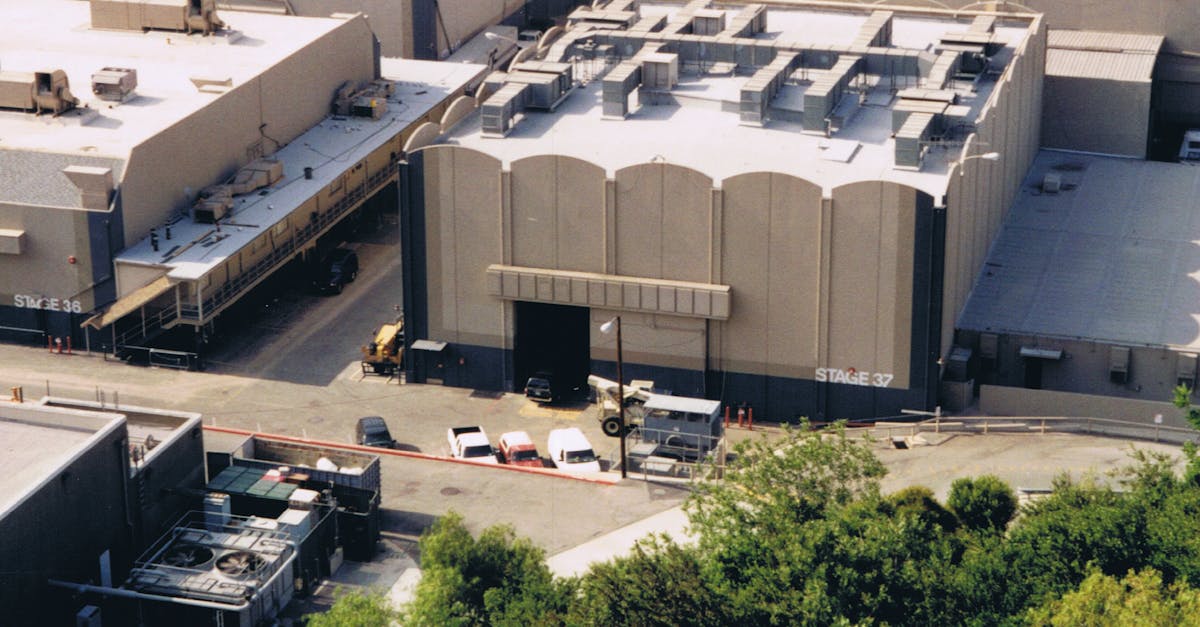
Evaluating the Cost-Effectiveness of HVAC Retrofitting
Retrofitting HVAC systems can lead to substantial long-term benefits that extend beyond mere financial savings. Improved energy efficiency often results in lower utility bills over time, allowing building owners to recoup their initial investment gra...
Read more →
Eligibility Criteria for Government Subsidies on HVAC Systems
The installation of HVAC systems must adhere to strict standards and regulations to ensure safety, efficiency, and compliance with government incentives. Relevant Australian standards such as AS/NZS 3666 and AS/NZS 3823 outline the requirements for b...
Read more →
Case Studies of Successful HVAC Retrofits Using Incentives
HVAC retrofits play a significant role in minimising environmental impact by enhancing energy efficiency. Upgrading systems can lead to substantial reductions in energy consumption. This translates into lower greenhouse gas emissions, as older units ...
Read more →
Impact of Government Policies on Commercial HVAC Energy Savings
Environmental regulations have been pivotal in shaping advancements in HVAC technologies. Stricter emission standards and efficiency mandates encourage manufacturers to innovate. This often leads to the development of more efficient systems that cons...
Read more →
Exploring Tax Benefits for Energy Efficient HVAC Installations
Homeowners and businesses looking to capitalise on tax benefits for their energy-efficient HVAC installations should start by gathering relevant documentation. This includes invoices, receipts, and installation certificates that provide evidence of c...
Read more →
How to Apply for Clean Energy Funding for HVAC Solutions
Many applicants overlook the importance of reading the guidelines thoroughly. Each funding program has specific requirements regarding eligibility, documentation, and submission formats. Failing to adhere to these guidelines can lead to automatic dis...
Read more →
The Role of Renewable Energy Credits in Commercial HVAC Projects
Incorporating Renewable Energy Credits (RECs) into project planning is essential for commercial HVAC projects aiming to enhance sustainability while potentially reducing costs. A comprehensive assessment of available renewable energy sources should b...
Read more →
Maximising Financial Benefits from Energy Efficiency Rebates
Renewable energy options are becoming increasingly accessible for households and businesses. Various technologies allow individuals to harness natural resources to generate clean energy. Solar, wind, and hydroelectric systems represent a significant ...
Read more →
Understanding the Australian Government's HVAC Energy Efficiency Grants
Upgrading HVAC systems can lead to significant improvements in energy efficiency, which translates into lower utility bills for households and businesses. Modern systems often incorporate advanced technology, allowing for better temperature control a...
Read more →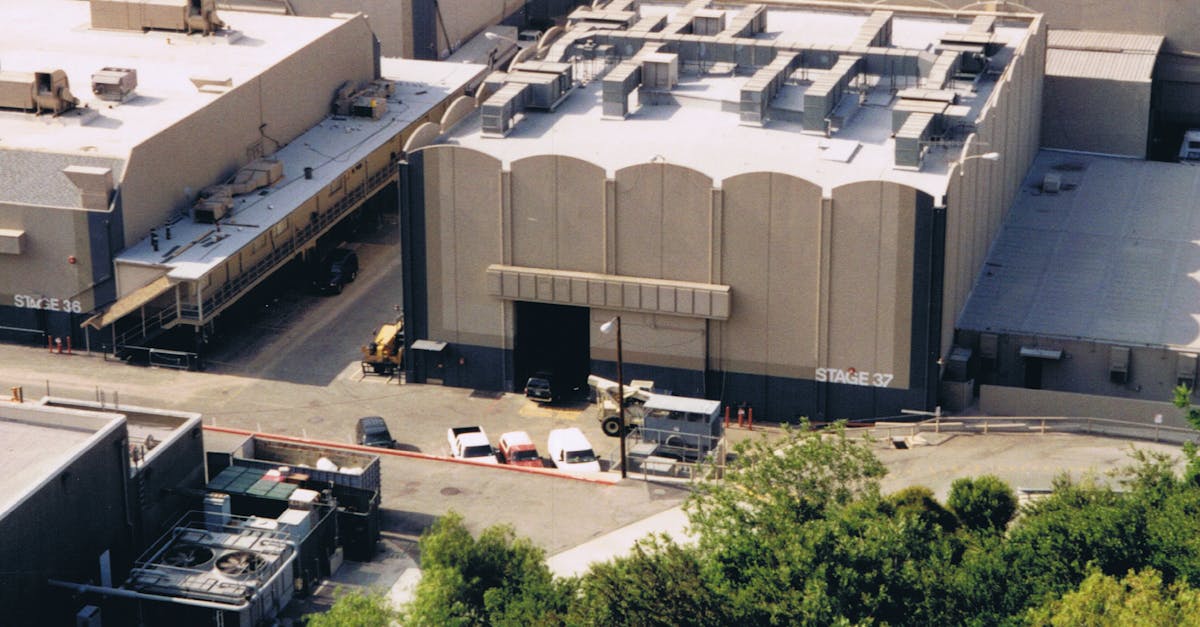
Navigating State-Level Incentives for Commercial HVAC Upgrades
Securing incentives for commercial HVAC upgrades often presents significant hurdles. Many businesses lack awareness of available programmes, leading to missed opportunities for financial support. Additionally, the complexity of application processes ...
Read more →
Harnessing Demand-Controlled Ventilation for Energy Conservation
Demand-controlled ventilation (DCV) has gained traction in various sectors due to its ability to optimise energy usage. In commercial buildings, it is particularly effective in spaces with variable occupancy such as offices, conference rooms, and gym...
Read more →
The Impact of Building Insulation on HVAC Energy Performance
Insulation effectiveness is primarily assessed through its ability to resist heat transfer, which is quantified using thermal resistance ratings known as R-values. A higher R-value indicates better insulating properties, enabling a building to mainta...
Read more →
Water-Saving Technologies in HVAC Systems for Enhanced Efficiency
These systems leverage water evaporation to cool air, making them highly efficient in specific climates. The basic principle involves water absorbing heat from the air and then evaporating, which cools the surrounding environment. Their effectiveness...
Read more →
Upgrade Paths: Energy Efficient Light Commercial HVAC Technologies
Upgrading to energy-efficient HVAC systems can lead to significant financial benefits for businesses. Many governments offer rebates and grants aimed at encouraging the adoption of green technologies. These incentives can substantially lessen the ini...
Read more →
Implementing Zoned HVAC Systems for Improved Energy Use
The installation of a zoned HVAC system begins with a thorough assessment of the property. An HVAC professional typically evaluates the layout, existing ductwork and insulation levels. This step helps determine the ideal configuration for the zoning ...
Read more →
Benefits of Variable Refrigerant Flow Systems in Commercial Spaces
Variable Refrigerant Flow (VRF) systems offer a remarkable level of design flexibility that can accommodate a wide range of commercial building configurations. These systems can be tailored to suit unique architectural layouts, ensuring optimal perfo...
Read more →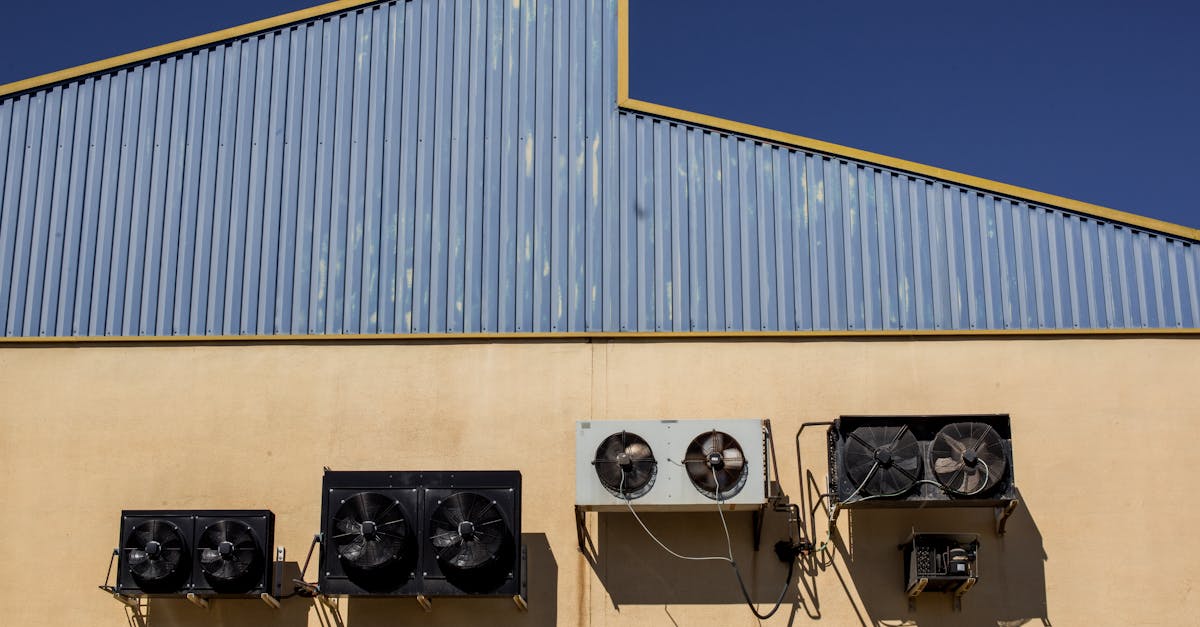
Evaluating High-Efficiency Air Filters for Energy Savings
Indoor air quality plays a crucial role in determining the overall energy efficiency of heating, ventilation, and air conditioning (HVAC) systems. Pollutants such as dust, allergens, and volatile organic compounds can hinder the airflow needed for op...
Read more →
The Role of Smart Thermostats in Enhancing Energy Efficiency
Modern smart thermostats prioritise user experience, ensuring an intuitive design that simplifies temperature control. Users can easily navigate through the interfaces on their devices, allowing for quick adjustments and personalised settings. Most m...
Read more →
Exploring Renewable Energy Options for Commercial HVAC Systems
Utilising biomass energy in HVAC systems presents a renewable alternative for heating needs in commercial spaces. This energy source, derived from organic materials such as wood chips, agricultural residues, and even certain types of waste, can be co...
Read more →
Understanding Passive Design Principles for Energy Efficient HVAC
Shading devices play a crucial role in minimising unwanted solar heat gain while allowing natural light to permeate spaces. Options such as awnings, pergolas, and strategically placed overhangs can significantly enhance indoor comfort during hotter m...
Read more →
The Financial Impact of Energy Inefficiency on Commercial Spaces
Upgrading to energy-efficient systems can significantly reduce operational costs for commercial spaces. This often leads to lower utility bills, as energy-efficient equipment consumes less power and, in many cases, operates more effectively than trad...
Read more →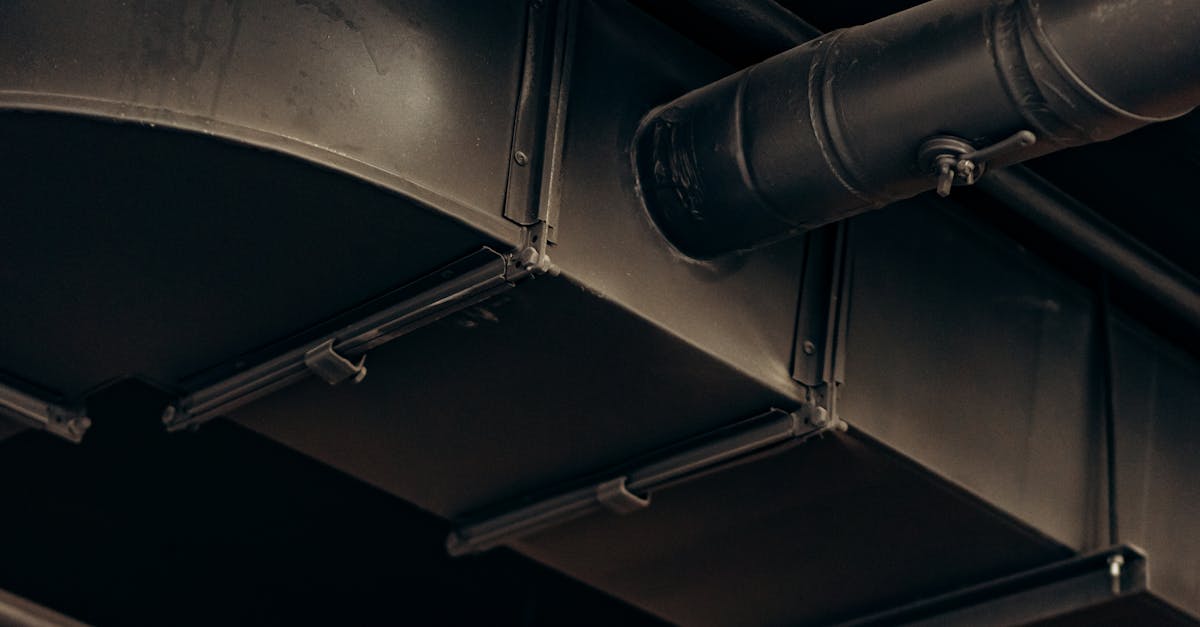
Key Metrics for Evaluating Energy Efficiency in HVAC Systems
The measurement of heating efficiency in furnaces is primarily assessed through Annual Fuel Utilization Efficiency. This metric represents the percentage of fuel converted into usable heat over the course of a year. A higher AFUE rating indicates a m...
Read more →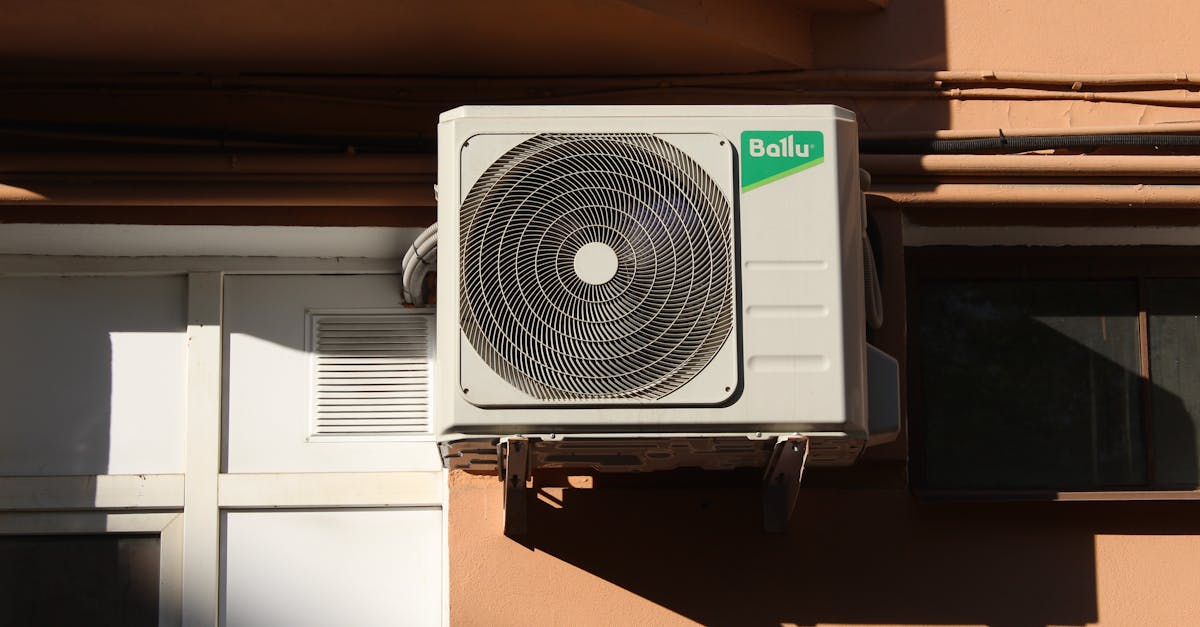
Enhancing Employee Comfort with Energy Efficient Heating and Cooling
Evaluating the performance of existing heating and cooling systems is essential to determine their energy efficiency and overall effectiveness. Consider factors such as the age of the systems, maintenance history, and energy bills. An outdated unit m...
Read more →
The Role of Energy Efficient HVAC in Sustainable Business Practices
Regular maintenance is essential for ensuring optimal performance and longevity of HVAC systems. Routine inspections help identify any inefficiencies or potential failures before they escalate into larger problems. Tasks such as cleaning filters, che...
Read more →
Long-Term ROI of Investing in Energy Efficient HVAC Systems
Numerous commercial enterprises have successfully implemented energy-efficient HVAC systems, showcasing the tangible benefits of this investment. One such case involves a mid-sized office building in Melbourne that upgraded its existing system to a h...
Read more →
Improving Indoor Air Quality with Energy Efficient HVAC Technologies
Effective ventilation plays a crucial role in maintaining clean and breathable indoor air. By facilitating the exchange of stale air with fresh outdoor air, it helps dilute indoor pollutants such as volatile organic compounds, dust, and allergens. Wh...
Read more →
Environmental Benefits of Transitioning to Energy Efficient HVAC Systems
Upgrading to energy efficient HVAC systems not only contributes to environmental sustainability, but also results in significant long-term cost savings for homeowners and businesses alike. The initial investment may seem substantial; however, these s...
Read more →
Cost Savings Realised Through Energy Efficient Heating and Cooling Solutions
Many Australian governmental initiatives aim to promote energy efficiency in heating and cooling systems. These programmes often include financial incentives like rebates for homeowners who upgrade to environmentally friendly appliances. Different st...
Read more →
Cost Considerations for Professional HVAC Installation
Investing in a high-efficiency HVAC system may involve a steeper initial cost, but the long-term savings can be significant. Such systems are designed to consume less energy while maintaining optimal comfort levels. Over time, the reduction in energy...
Read more →
The Benefits of Hiring Licensed HVAC Professionals
Licensed HVAC professionals possess advanced training and experience, allowing them to quickly identify issues within heating and cooling systems. Their expertise enables them to use diagnostic tools effectively, pinpointing problems that may not be ...
Read more →
How Energy Efficient HVAC Systems Enhance Business Operations
Smart technology has revolutionised the way HVAC systems operate, providing enhanced efficiency and functionality. These innovative systems integrate artificial intelligence and machine learning, enabling them to learn from usage patterns and adapt t...
Read more →
Ensuring Compliance with Australian Standards in HVAC Installation
Quality control in HVAC installation is essential to ensure that systems operate efficiently and safely. Implementing rigorous checklists during the installation process can help maintain high standards. Each phase of the installation should be thoro...
Read more →
Key Steps in the Professional HVAC Installation Process
The installation of ductwork is crucial for the overall efficiency of any HVAC system. Properly designed and installed ducts ensure optimal airflow throughout the building, enhancing comfort and energy efficiency. An effective duct system minimises a...
Read more →
Case Studies: Successful Implementation of Energy Efficient HVAC Systems
The implementation of energy-efficient HVAC systems has made significant strides towards promoting environmental sustainability. These systems consume less energy compared to traditional units, leading to a considerable reduction in greenhouse gas em...
Read more →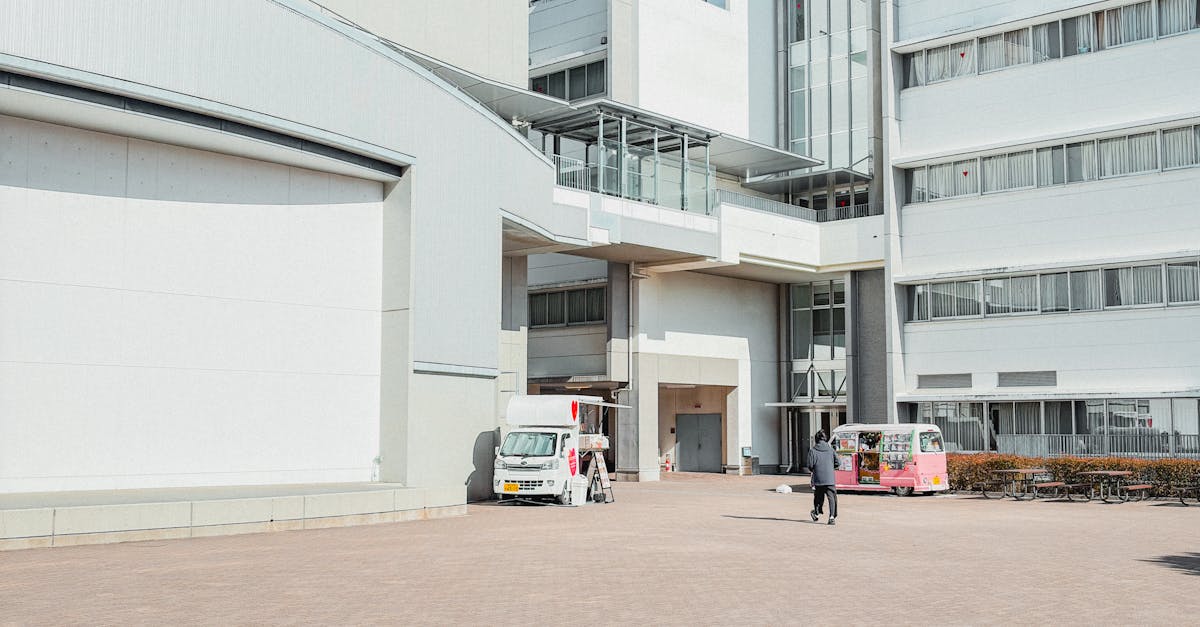
Essential Qualifications for Commercial HVAC Installers
In the commercial HVAC industry, adherence to safety protocols is paramount. Technicians must familiarise themselves with relevant regulations and standards, ensuring that every project follows established guidelines. Regular training sessions on equ...
Read more →
The Impact of Professional Installation on Energy Efficiency
Energy efficiency ratings play a crucial role in guiding consumers towards making informed decisions regarding their energy-saving appliances and systems. These ratings often come from third-party testing organisations and are based on standardised m...
Read more →
How Professional Installation Affects HVAC System Longevity
Careful planning is essential before installing an HVAC system. Assessing the specific needs of the space can ensure that the chosen system aligns with both capacity and energy requirements. It is vital to consider factors such as insulation, vent pl...
Read more →
Criteria for Choosing a Qualified HVAC Installation Professional
Selecting a qualified HVAC installation professional involves understanding their insurance and liability coverage. It is essential that the installer has adequate insurance to protect both themselves and the homeowner. This coverage typically shield...
Read more →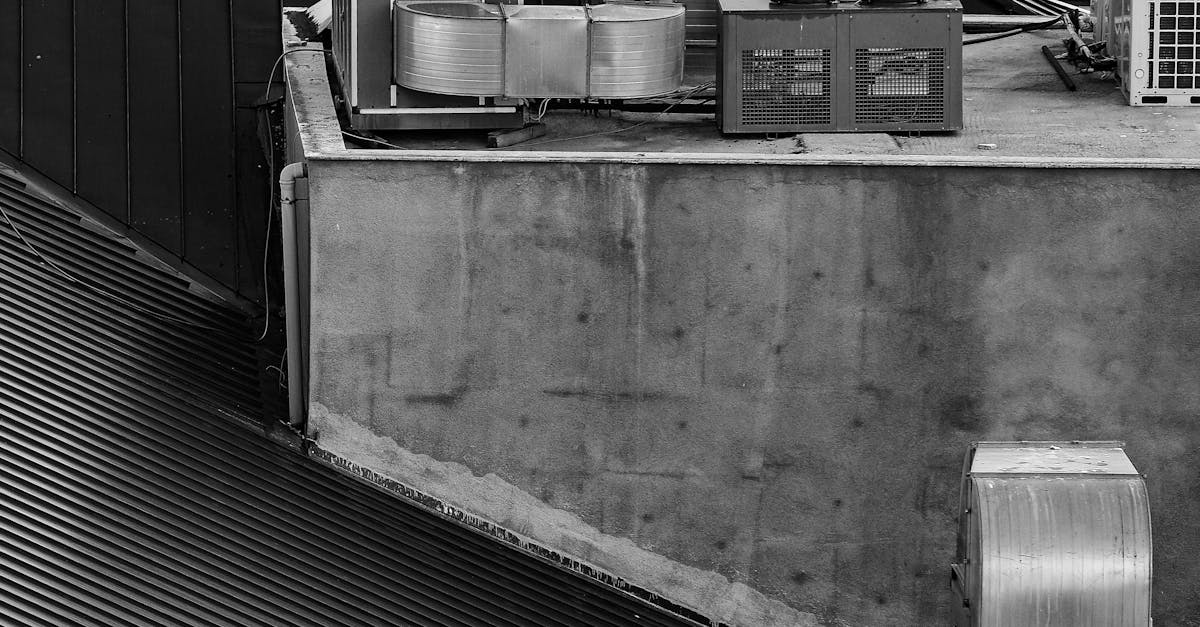
Understanding the Role of Professional Installation in Commercial HVAC Systems
Adhering to industry standards during the installation of commercial HVAC systems is crucial for both safety and efficiency. Various governing bodies set forth regulations that ensure systems operate effectively and reduce environmental impact. Compl...
Read more →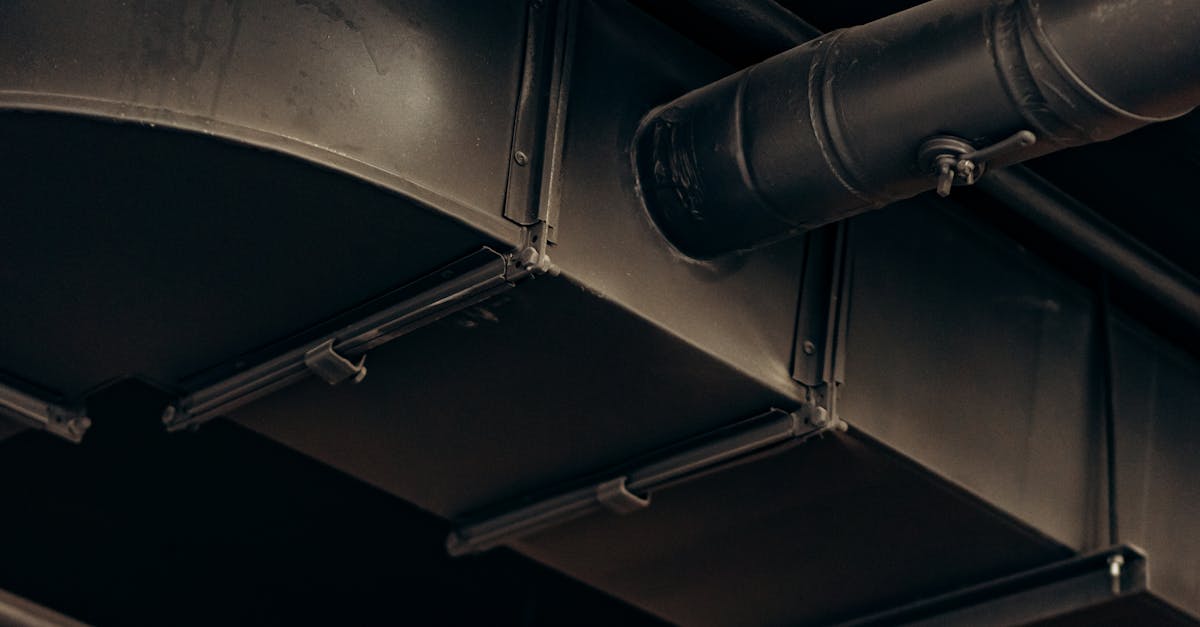
The Risks of DIY Commercial HVAC Installation
Inadequate installation of commercial HVAC systems can lead to significant energy losses. When units are not correctly aligned or sealed, they struggle to maintain optimal performance levels. This inefficiency not only results in increased energy bil...
Read more →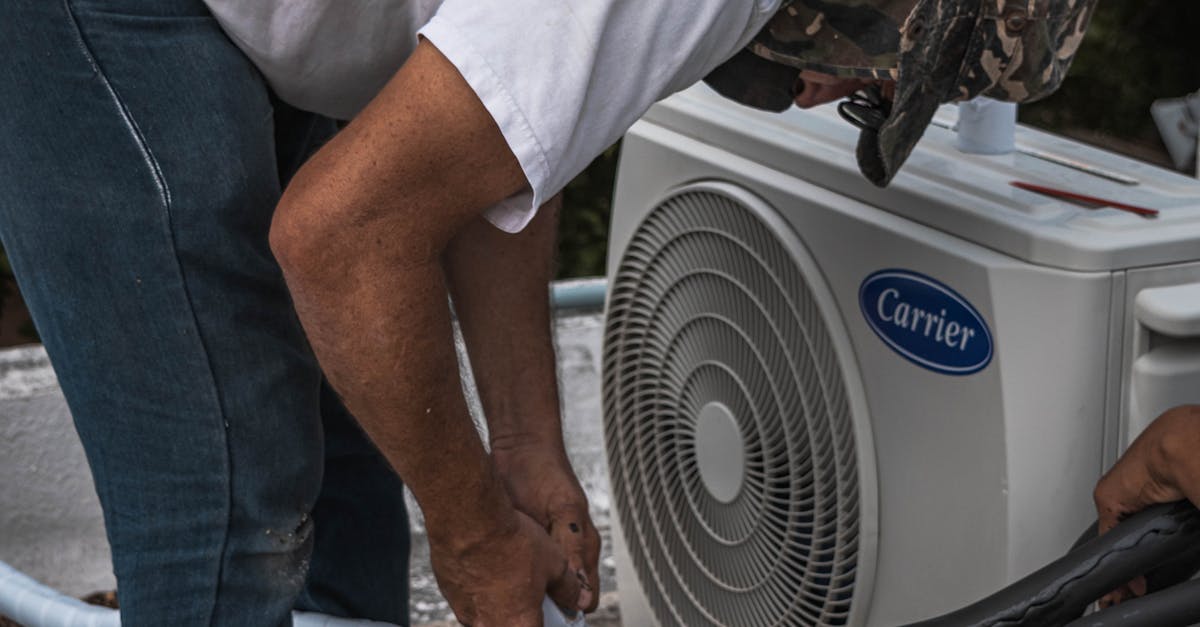
Managing Frequent System Cycling: Causes and Solutions
Fine-tuning system settings can significantly enhance performance and reduce unnecessary cycling. This involves adjustments in temperature thresholds, timer settings, and operation modes. By aligning system behaviour with user requirements and enviro...
Read more →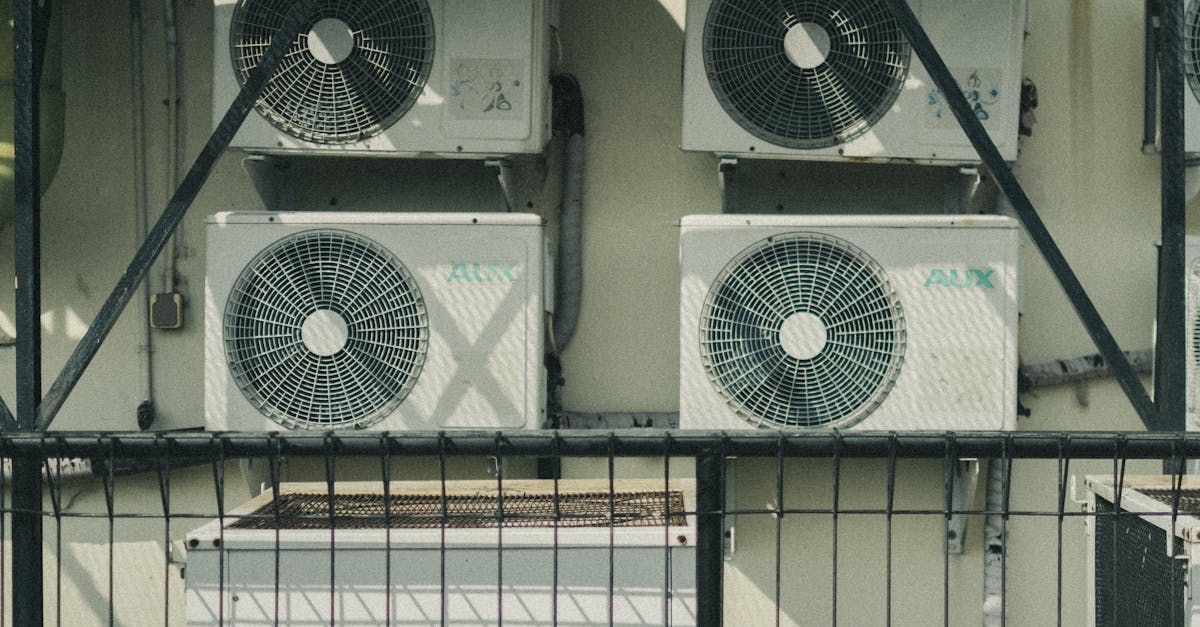
Dealing with Thermostat Malfunctions: Steps for Efficient Resolution
Wireless thermostats rely on batteries to function properly. Regular maintenance includes checking and replacing batteries to ensure consistent performance. Most models will provide a low battery warning, but it's wise to be proactive. Ignoring these...
Read more →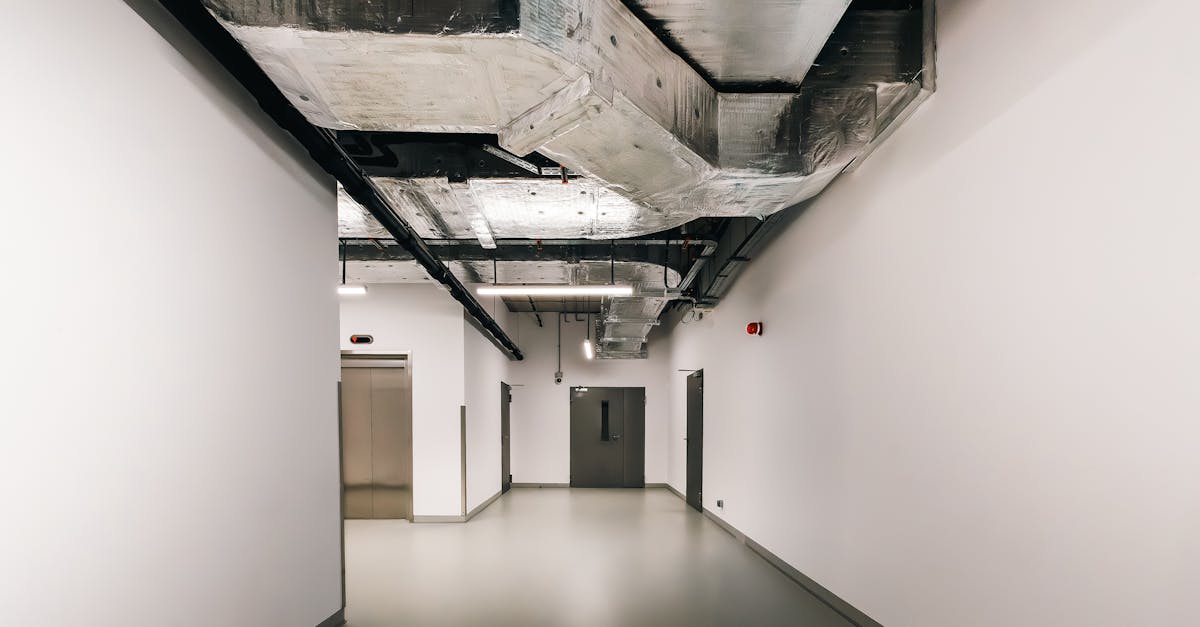
Repair Strategies for Broken Ductwork in Commercial Buildings
Identifying and sealing leaks in ductwork is vital for maintaining energy efficiency and indoor air quality in commercial buildings. One effective method involves using a combination of visual inspections and the application of soapy water. By sprayi...
Read more →
Repairing Electrical Component Failures in Commercial HVAC Systems
Electrical faults in commercial HVAC systems can manifest in various forms, often resulting in inefficient operation or complete system failure. One common technique for addressing those faults is the visual inspection of wiring and connections. Loos...
Read more →
Solutions for Condensate Drain Problems in HVAC Systems
Investing in a modern HVAC system can significantly reduce the likelihood of condensate drain problems. Newer models often feature advanced technology and improved design elements that enhance drainage efficiency. These upgrades can lead to a more ef...
Read more →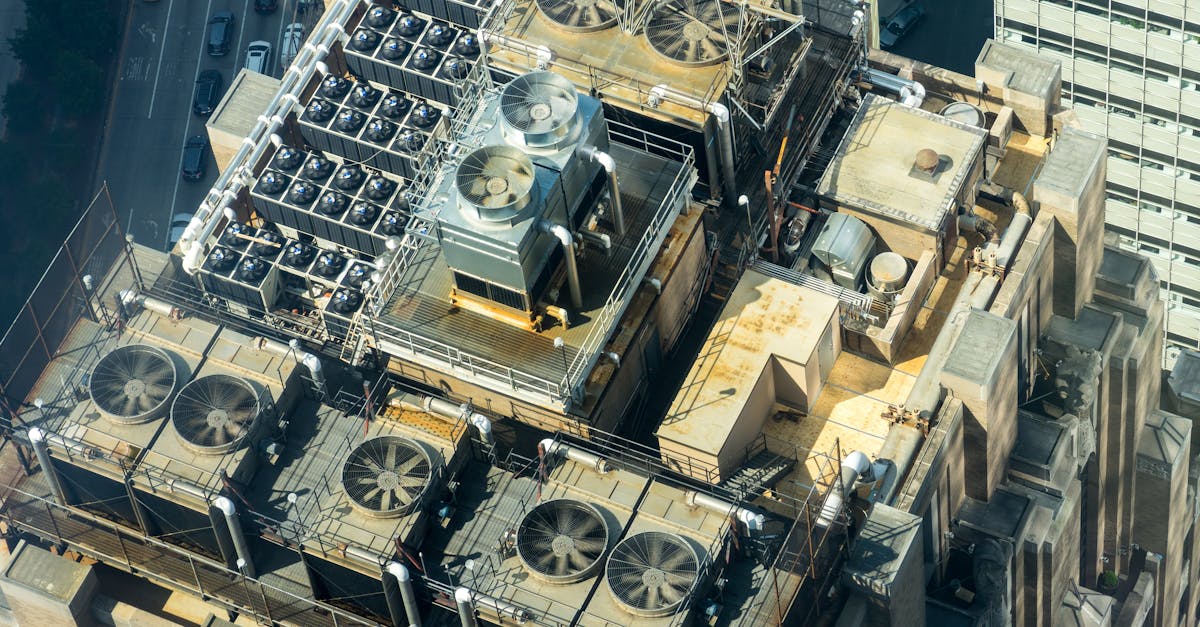
Troubleshooting Inconsistent Temperature Control in Large Facilities
Maintaining HVAC systems is crucial for ensuring consistent temperature control in large facilities. Regular checks can identify potential issues before they escalate, which improves system efficiency. Components such as filters, coils, and ducts req...
Read more →
Addressing Poor Indoor Air Quality Issues in Commercial Spaces
Regular maintenance of HVAC systems is essential for ensuring the longevity and efficiency of the equipment. Scheduled check-ups help identify issues before they escalate into significant problems, potentially resulting in costly repairs or replaceme...
Read more →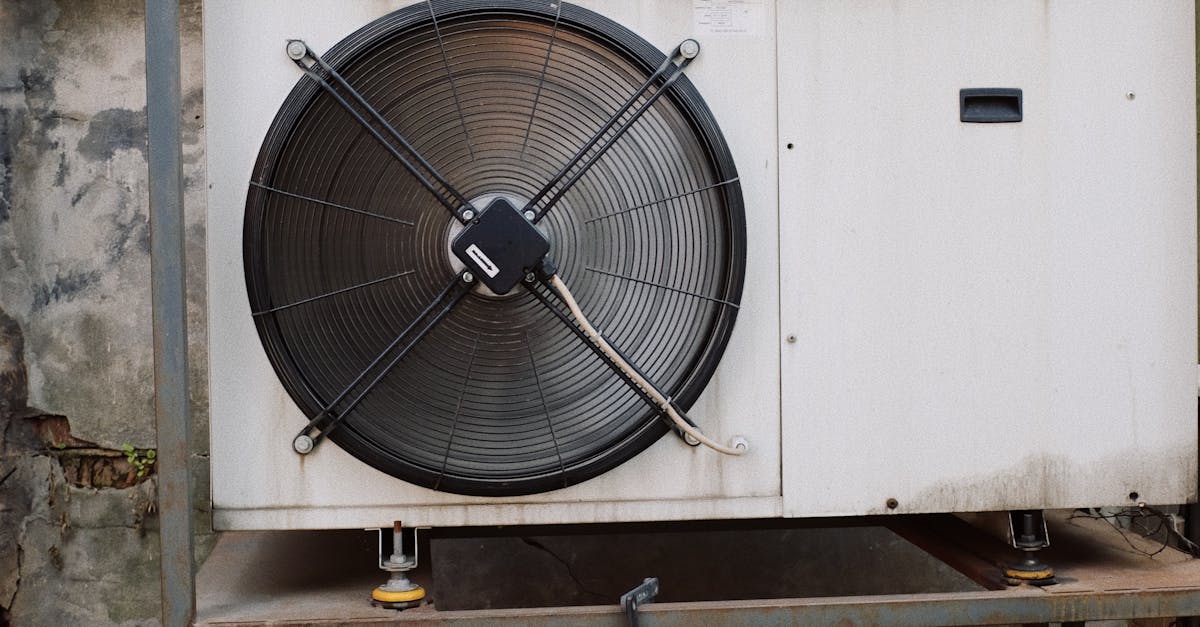
Diagnosing Unusual Noises from HVAC Units: A Guide for Melbourne Businesses
Whistling sounds in HVAC units can indicate airflow issues that require immediate attention. These noises may emerge when air is forced through narrow passages or around obstructions, leading to increased pressure and inefficiency. Identifying the so...
Read more →
Resolving Frequent Airflow Problems in Melbourne's Commercial HVAC
Selecting an appropriately sized HVAC system is crucial for efficiency and comfort in commercial spaces. Systems that are too large can cycle on and off frequently, leading to increased energy consumption and heightened wear on components. In contras...
Read more →
Identifying Common Refrigerant Leaks in Commercial HVAC Systems
Refrigerant leaks pose significant risks to both the environment and public health. Many refrigerants have high global warming potential (GWP), meaning they can trap heat in the atmosphere much more effectively than carbon dioxide. This increases the...
Read more →
The Impact of Regular Maintenance on Energy Consumption
Regular assessment is crucial to maintaining energy systems effectively. Scheduling routine inspections allows for the identification of potential issues before they escalate into larger problems. This proactive approach not only ensures smoother ope...
Read more →
Understanding the Benefits of Routine HVAC System Checks
Regular maintenance of HVAC systems is essential for meeting warranty stipulations set by manufacturers. These warranties often outline specific requirements regarding servicing intervals and procedures that must be adhered to in order to maintain co...
Read more →
Best Practices for Maintaining Commercial Refrigeration Units
Maintaining optimal refrigerant levels is crucial for the effective operation of commercial refrigeration units. Insufficient refrigerant can lead to inefficient cooling, increased energy consumption, and potential damage to the system. Regular inspe...
Read more →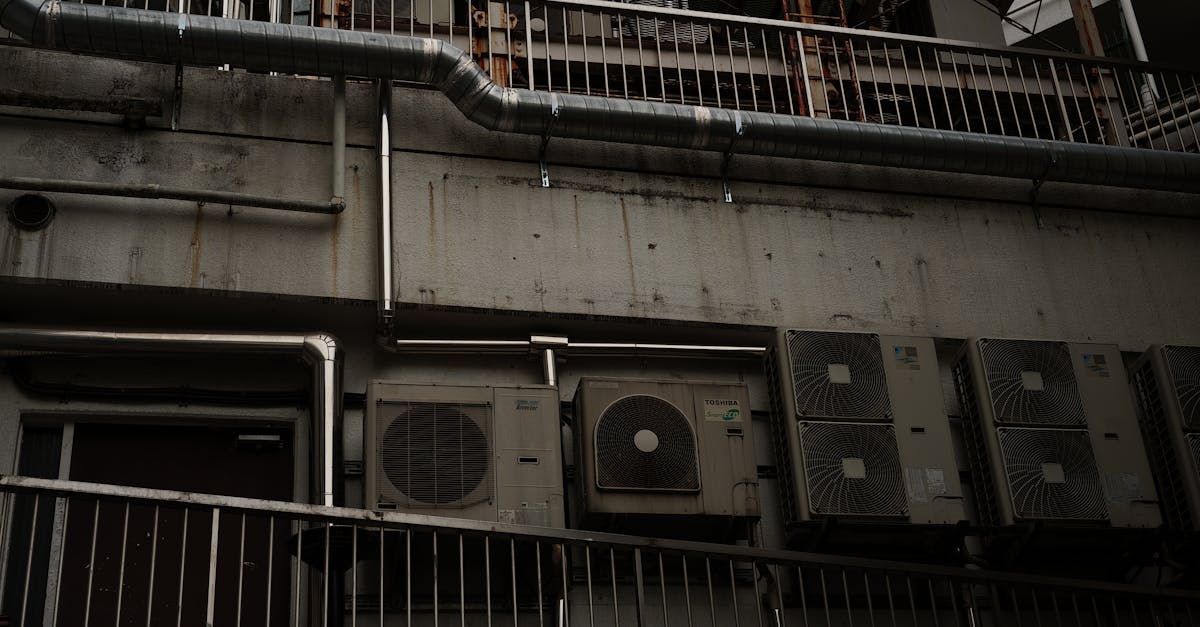
The Role of Clean Filters in HVAC Efficiency
Selecting the appropriate filter for an HVAC system involves understanding the specific requirements of your unit. Different systems may support various filter types, including pleated, flat panel, or electronic options. It’s essential to consider ...
Read more →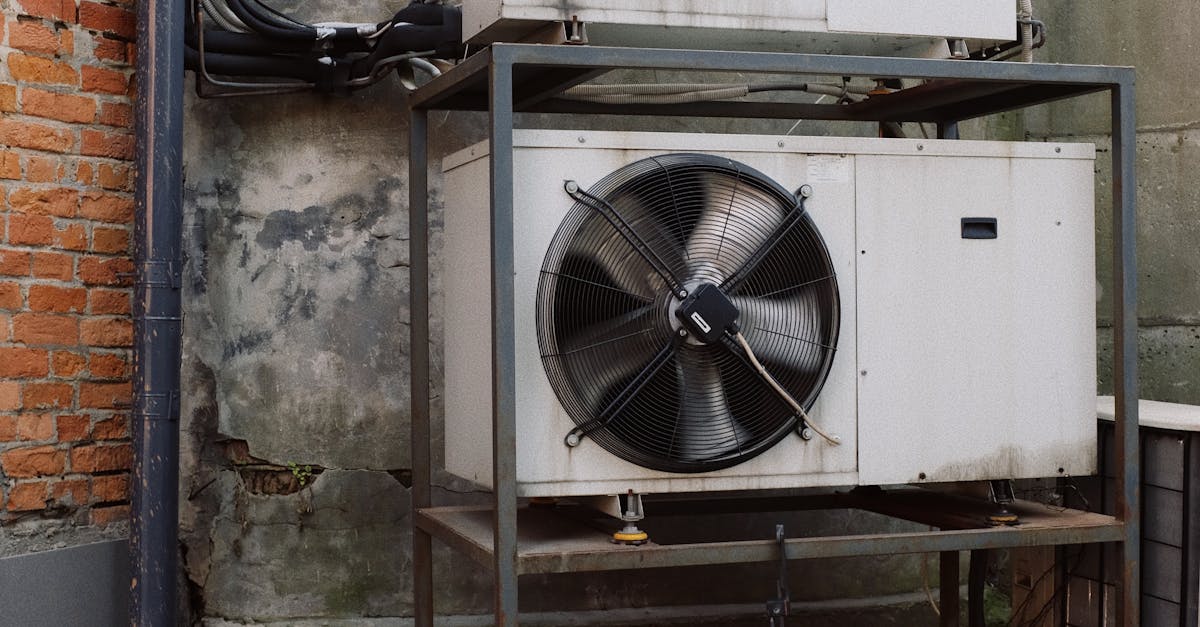
Preventative Maintenance Strategies for HVAC Systems
Performing regular maintenance on your HVAC system can significantly enhance its performance and longevity. Homeowners can start by replacing or cleaning air filters every few months. Clogged filters restrict airflow, making the system work harder. E...
Read more →
The Importance of Regular Duct Inspections and Cleanings
Duct cleaning involves several steps to ensure that air systems are free from dust, allergens, and other contaminants. Initially, an inspection is conducted to assess the condition of the ductwork. This is followed by sealing all vents to prevent dus...
Read more →
How to Extend the Lifespan of Your HVAC Equipment
Proper insulation plays a significant role in the efficiency and longevity of HVAC systems. By minimising thermal fluctuations, insulated ductwork helps maintain a consistent temperature throughout the home. Additionally, insulation reduces the workl...
Read more →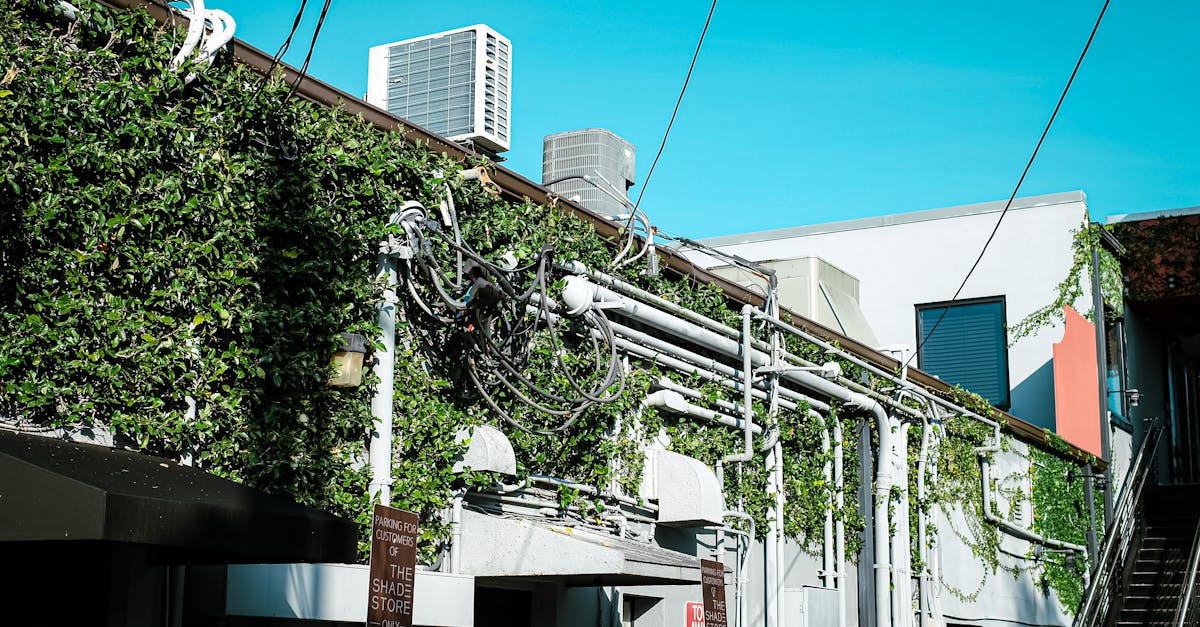
Signs Your HVAC System Needs Immediate Attention
Experiencing poor air quality can significantly impact the comfort and health of any indoor environment. Signs that the air you breathe is compromised include an increase in dust accumulation, persistent musty odours, or a rise in allergy symptoms am...
Read more →
Seasonal Maintenance Checklist for Commercial HVAC Systems
Commercial HVAC systems can encounter a variety of issues over time. One common problem is reduced airflow, often caused by clogged filters or ductwork. Regular inspections can help identify these blockages before they lead to more significant challe...
Read more →
Essential HVAC Maintenance Tasks for Melbourne Businesses
Regularly checking refrigerant levels is crucial for maintaining optimal HVAC system performance. Insufficient refrigerant can lead to reduced cooling efficiency and overworking of the compressor. This not only affects the comfort of the environment ...
Read more →
Installation Positioning: Optimising Energy Efficiency
Insulation acts as a barrier against heat transfer, playing a crucial role in energy efficiency within buildings. By reducing the flow of heat during both hot and cold seasons, it maintains a comfortable indoor environment while lowering the demand f...
Read more →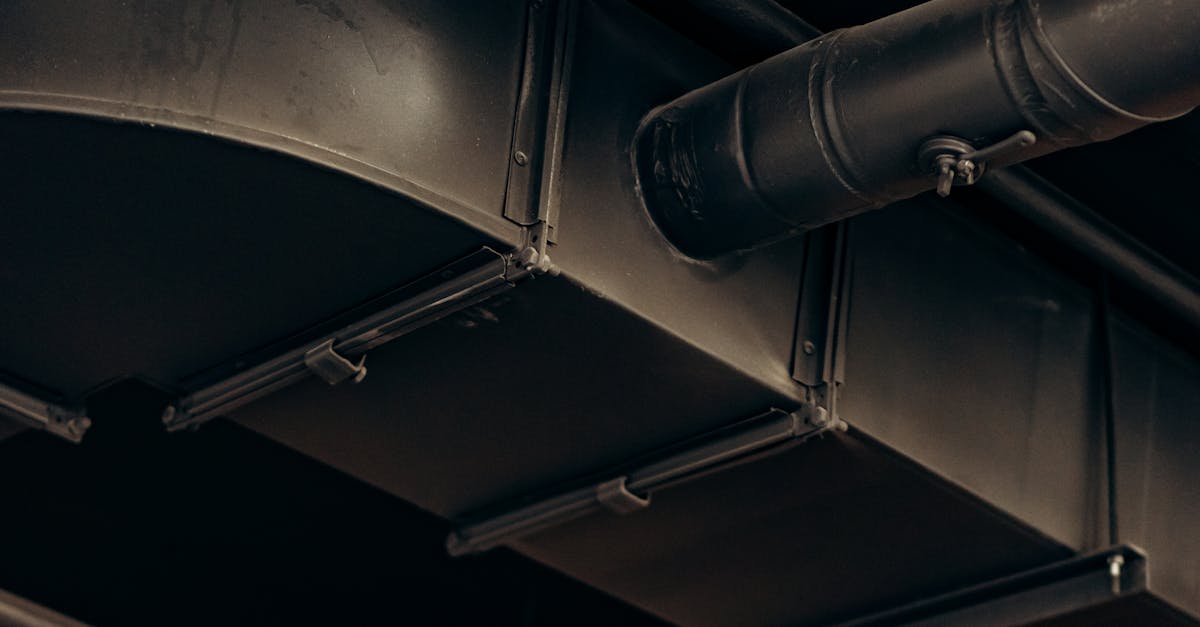
Correcting Airflow Issues During Commercial HVAC Installation
Optimising fan speeds is crucial for enhancing the overall performance of commercial HVAC systems. Adjustments to fan speeds can significantly influence airflow dynamics, resulting in better temperature control and energy efficiency. When fans operat...
Read more →
Managing Communication with Contractors During HVAC Setup
Clear documentation of key decisions is essential in managing HVAC projects effectively. This practice provides a reference point for both parties and helps ensure everyone is aligned on project objectives. Written records can include notes from meet...
Read more →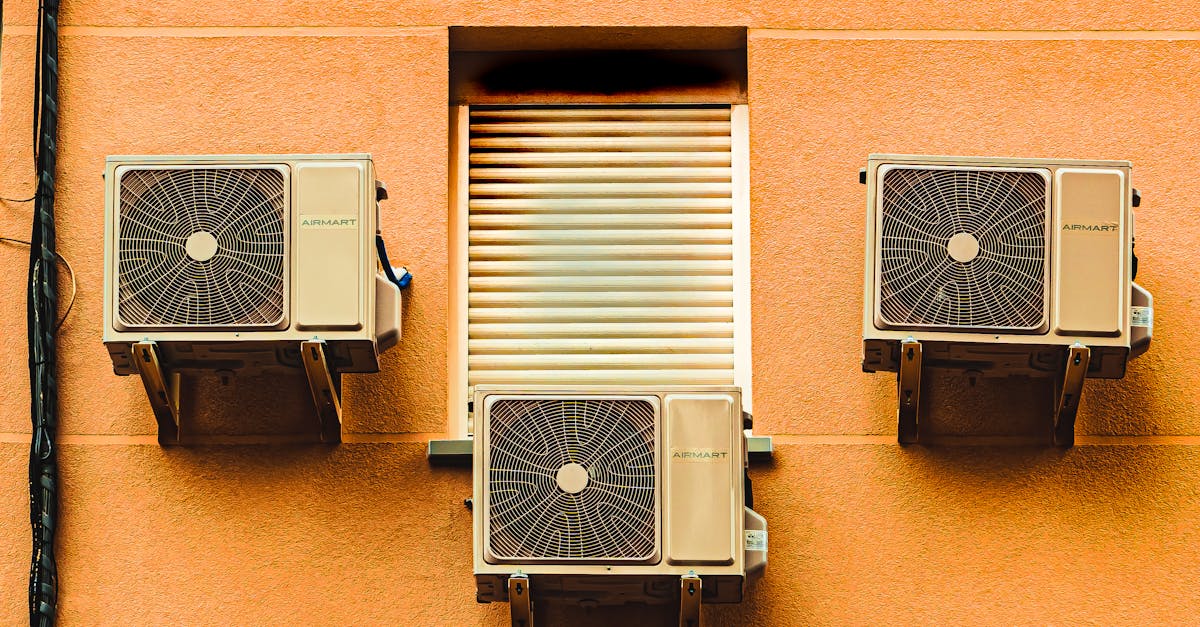
Understanding Load Calculations for Efficient Installation
Determining the electrical load for a system begins with a comprehensive assessment of the expected usage. This involves listing all electrical devices that will be connected to the system, noting their power ratings, and estimating their operational...
Read more →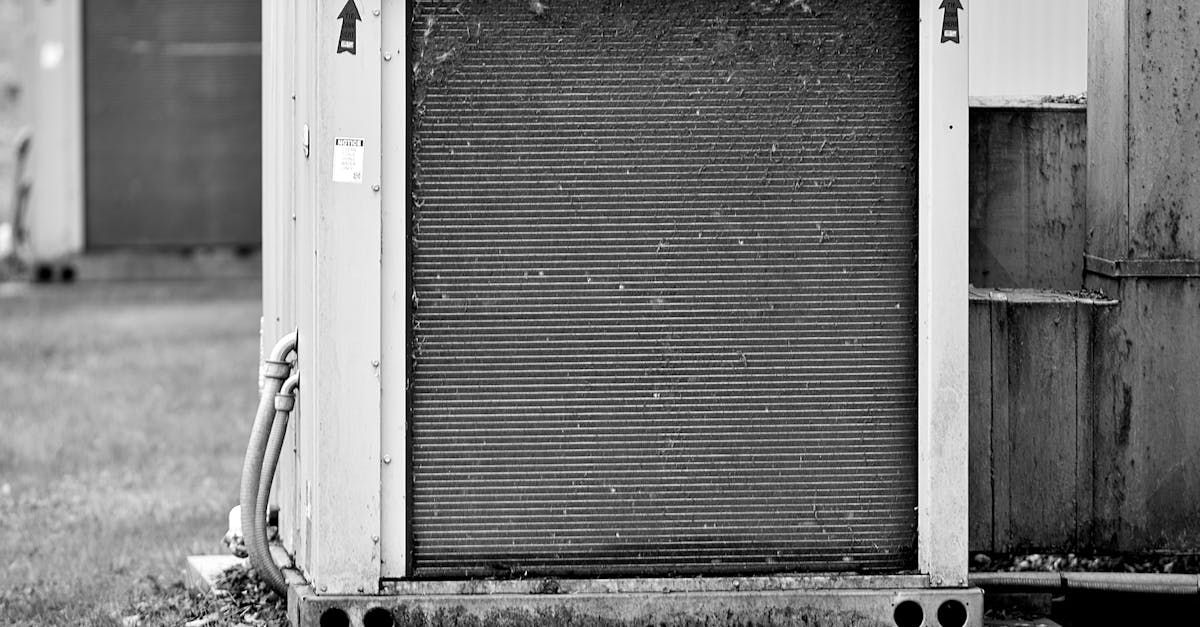
Mitigating Noise Issues During HVAC Installation
Vibration dampeners play a crucial role in reducing noise during HVAC system installations. These devices are engineered to absorb and isolate vibrations generated by the system's operation. By minimising the transmission of these vibrations to surro...
Read more →
Overcoming HVAC Installation Delays: Tips and Strategies
Supply chain issues can significantly impact HVAC installation timelines. Establishing solid relationships with reliable suppliers ensures consistent access to necessary materials and equipment. Regular communication with vendors helps identify poten...
Read more →
Ensuring Proper Electrical Connections in HVAC Setup
Electrical connection issues in HVAC systems can manifest in a variety of ways. Common symptoms include unresponsive units, erratic cycling, or failure to start altogether. One of the first steps in troubleshooting is to check circuit breakers and en...
Read more →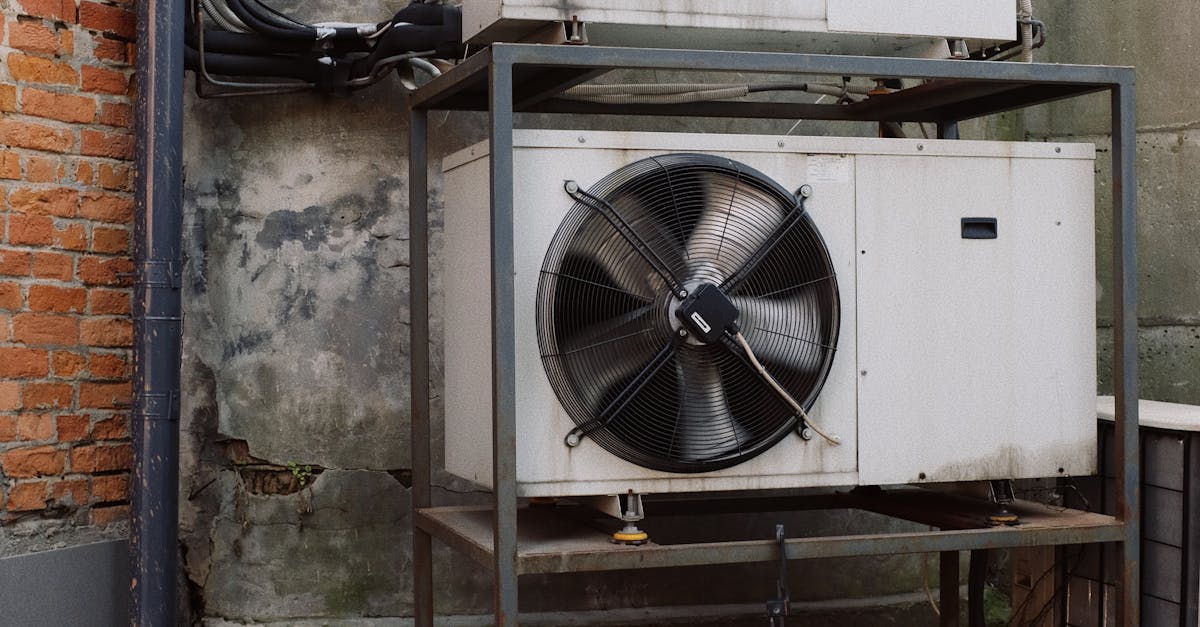
Common Obstacles During HVAC Ductwork Installation
Installation teams often face challenges due to weather-related factors. Extreme temperatures, heavy rainfall or high winds can impact the worksite. Unpredictable weather conditions can delay progress and affect the overall project timeline. Safety i...
Read more →
Navigating Building Code Requirements for HVAC Systems
Failure to adhere to proper duct insulation standards poses significant issues in HVAC installations. Insufficiently insulated ducts lead to energy loss and increased operational costs. This oversight can also cause discomfort in conditioned spaces, ...
Read more →
Addressing Space Constraints in Commercial HVAC Installation
Modular HVAC systems offer a versatile solution for environments where space is at a premium. These systems consist of independent, pre-engineered components that can be easily assembled and configured according to specific needs. This flexibility al...
Read more →
Understanding the Integration of Smart HVAC Systems in Commercial Spaces
Regular upkeep of smart HVAC systems is crucial to ensuring their optimal performance and longevity. These advanced systems rely on intricate technology and sensors to monitor and adjust climate conditions automatically. Therefore, a proactive approa...
Read more →
The Role of Evaporative Coolers in Melbourne's Climate
Regular upkeep is essential for ensuring that evaporative coolers operate efficiently. Cleaning or replacing the water pads is one of the most important tasks. This should be done on a seasonal basis to prevent the build-up of mineral deposits and to...
Read more →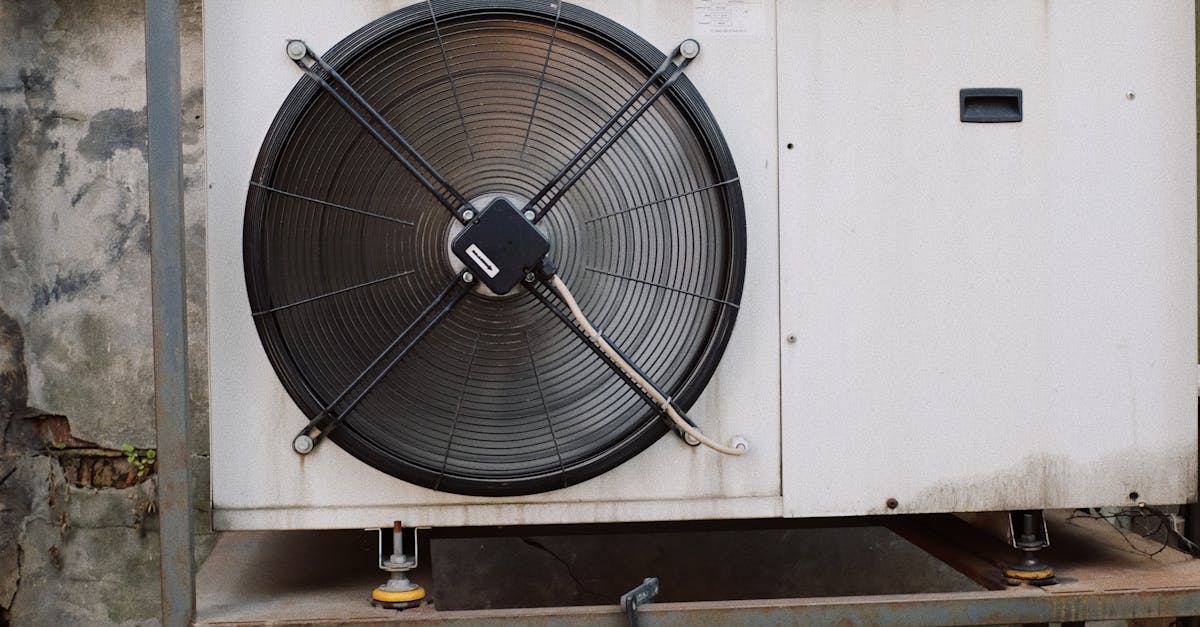
Exploring the Use of Hydronic Heating and Cooling Systems
Hydronic heating systems offer versatile solutions suitable for various settings. In residential spaces, underfloor heating has gained popularity due to its ability to provide evenly distributed warmth. Homeowners appreciate the energy efficiency and...
Read more →
Key Features of Ducted Refrigerated Air Conditioning Systems
Ducted refrigerated air conditioning systems are typically designed to operate quietly, providing a comfortable indoor environment without intrusive noise. The units are installed out of sight, usually in the ceiling space, reducing sound disturbance...
Read more →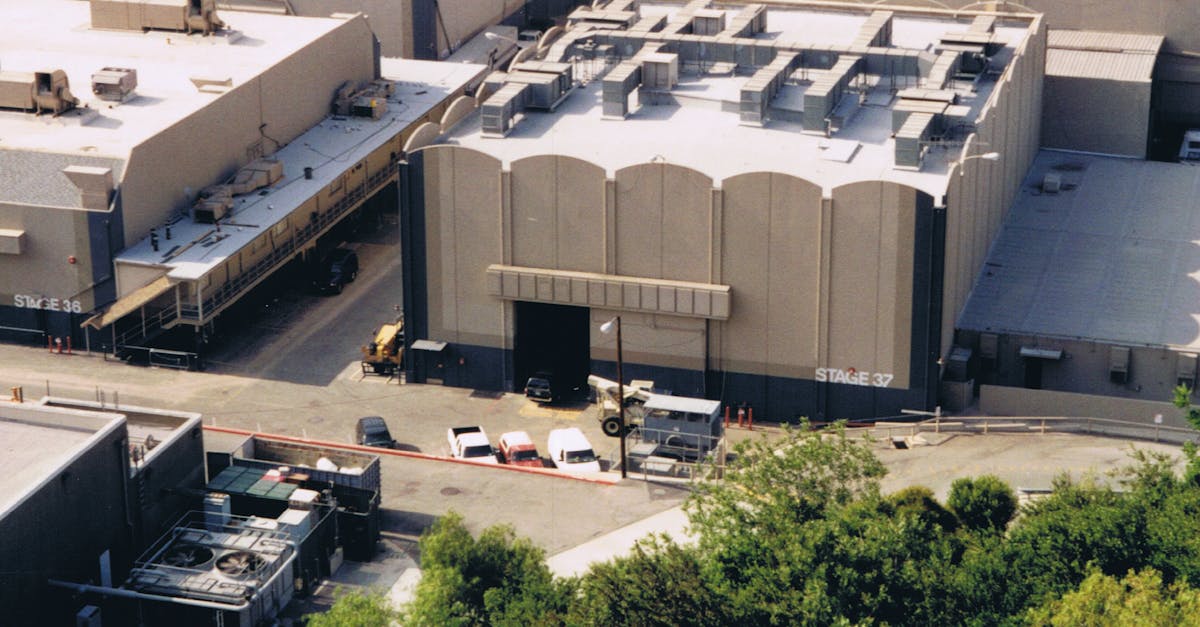
Comparing Direct Expansion and Chilled Water Systems
Chilled water systems offer significant scalability, making them suitable for a variety of applications, especially in large commercial or industrial settings. This flexibility allows for easy adjustments to cooling capacity without extensive equipme...
Read more →
Understanding the Functionality of Rooftop Packaged Units
Regular maintenance is vital for rooftop packaged units to ensure their efficiency and longevity. This involves routine inspections, which include checking electrical components, ensuring proper airflow, and examining refrigerant levels. Filters shou...
Read more →
Benefits of Chiller Systems in Melbourne's Commercial Sector
Chiller systems offer versatility in design, enabling customisation to meet the unique requirements of various commercial spaces. Whether it's a bustling office, a retail outlet, or a manufacturing facility, these systems can be tailored to fit diffe...
Read more →
A Guide to Selecting Variable Refrigerant Flow (VRF) Systems
Regular maintenance is essential to keep VRF systems operating efficiently and to extend their lifespan. Routine checks should focus on both indoor and outdoor units, ensuring that filters, coils, and condensate drains are clean and functional. Filte...
Read more →
Advantages of Multi-Split HVAC Systems for Large Businesses
A key feature of multi-split HVAC systems is their ability to maximise usable floor area in large businesses. Unlike traditional HVAC systems that require extensive ductwork and bulky units, multi-split systems allow for the installation of multiple ...
Read more →
Overview of Split System Commercial HVAC Solutions
Regular maintenance is essential for the longevity of split system commercial HVAC units. This typically includes routine inspections, cleaning, and servicing by qualified technicians. Filters should be replaced or cleaned every few months to ensure ...
Read more →